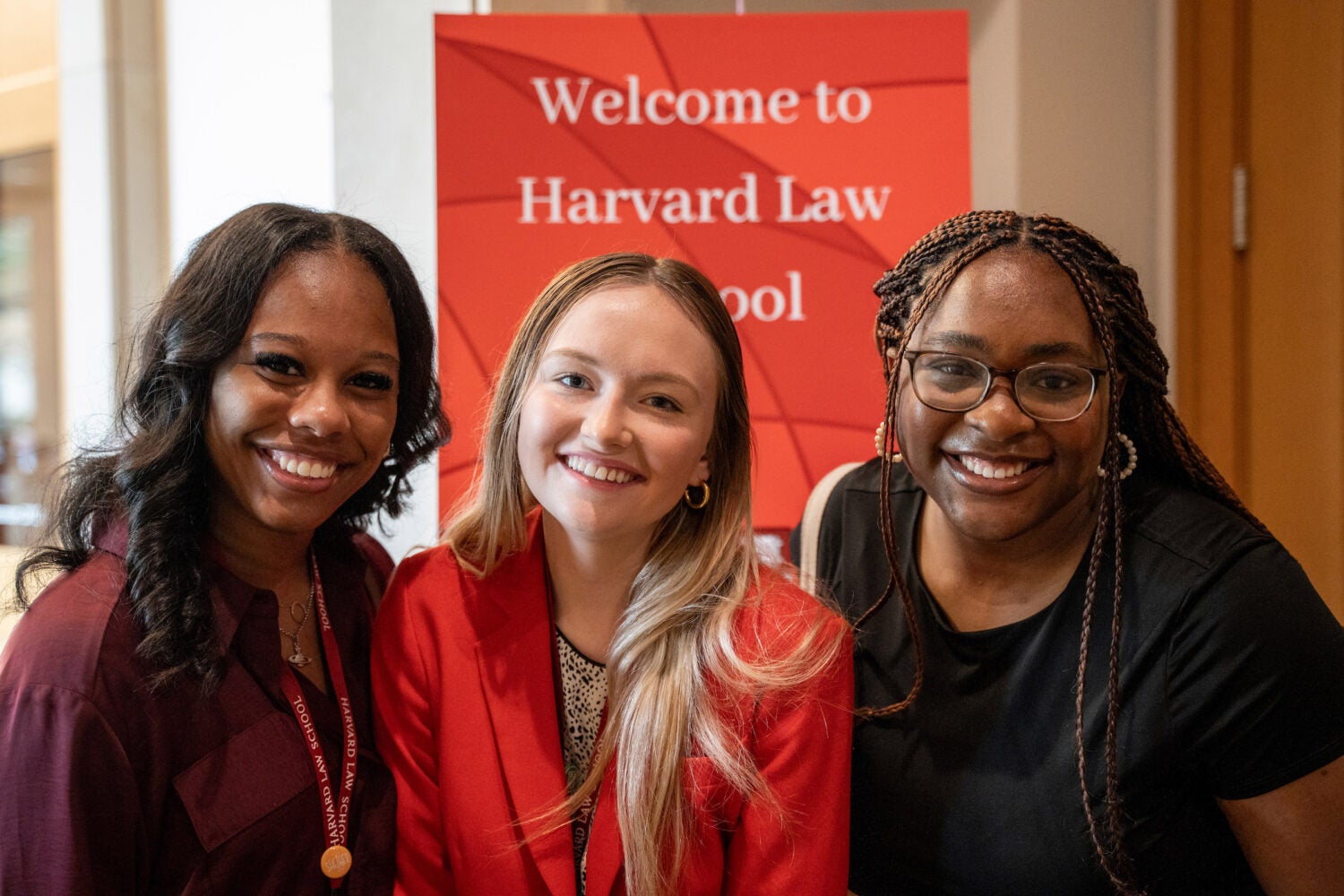This July the inaugural cohort of 35 fellows gathered on the third floor of the Wasserstein Hall for a weeklong residency of the Future Leaders in Law Program, a new yearlong series of engagements, including test prep classes, mentoring sessions, and networking opportunities, devoted to encouraging highly qualified candidates from underserved backgrounds to consider a life in the law. The program, a collaboration between Harvard Law School and Paul, Weiss, Rifkind, Wharton & Garrison, is one of many efforts led by Harvard to help increase diversity in the profession.
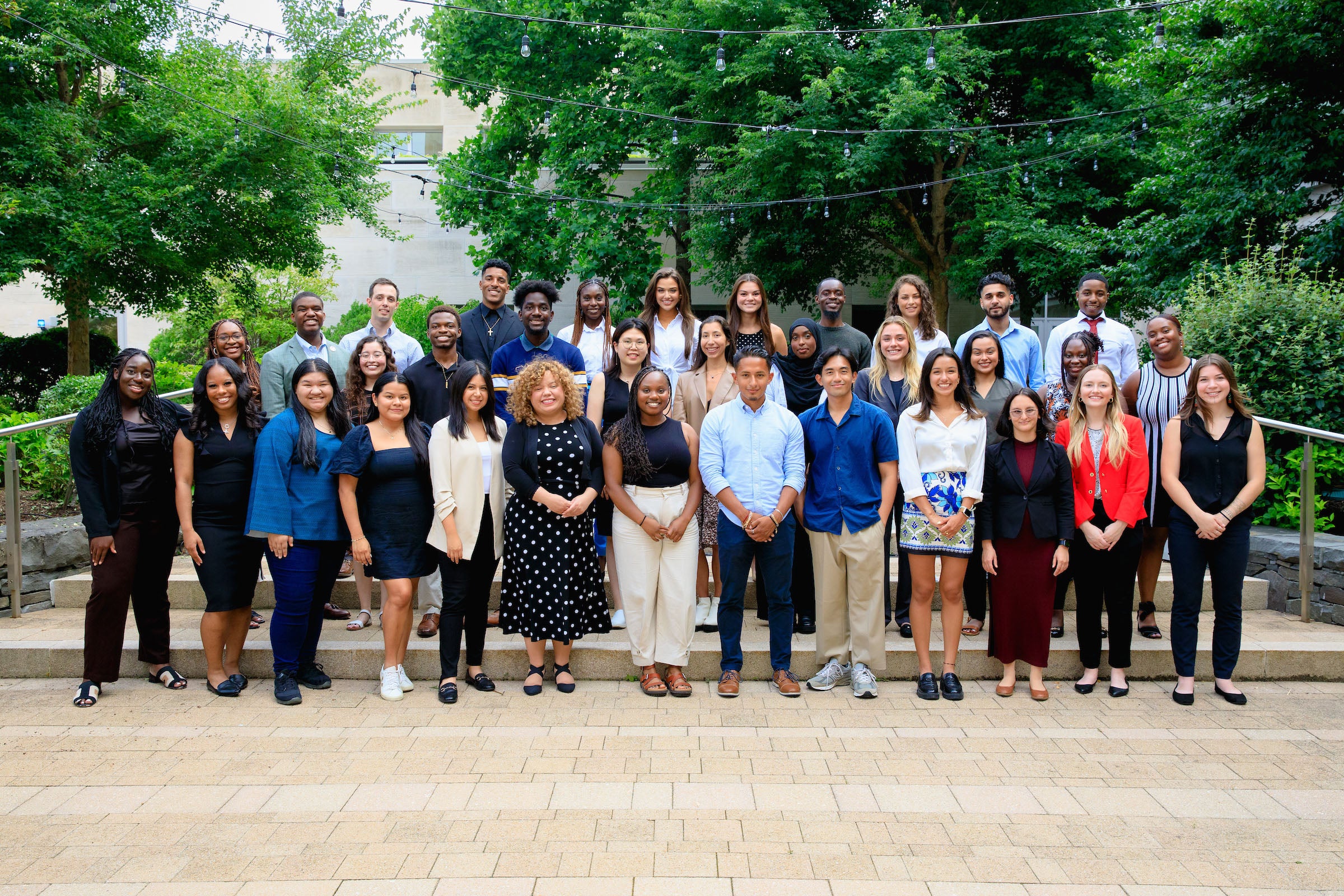
For a week this summer the new fellows, chosen from a group of 795 highly qualified applicants, ranging in age from 20 to 37, and hailing from as far away as Alaska and American Samoa, met with Harvard Law School faculty, staff and administrators; reviewed admissions criteria and test prep strategies; took a timed LSAT practice test, chatted with recent law school graduates studying for the bar; heard about Harvard’s varied clinical programs and the wide range of areas of work open to those studying at law Harvard and beyond.
They also found community.
Monica Monroe, the law school’s assistant dean for community, engagement, equity and belonging whose office is coordinating the effort, welcomed the group on a sunny Monday morning, noting the “amazing energy in this room.” She emphasized to the fellows that they “belong here” and that they “have what it takes to be a lawyer and to be a part of the legal profession.”
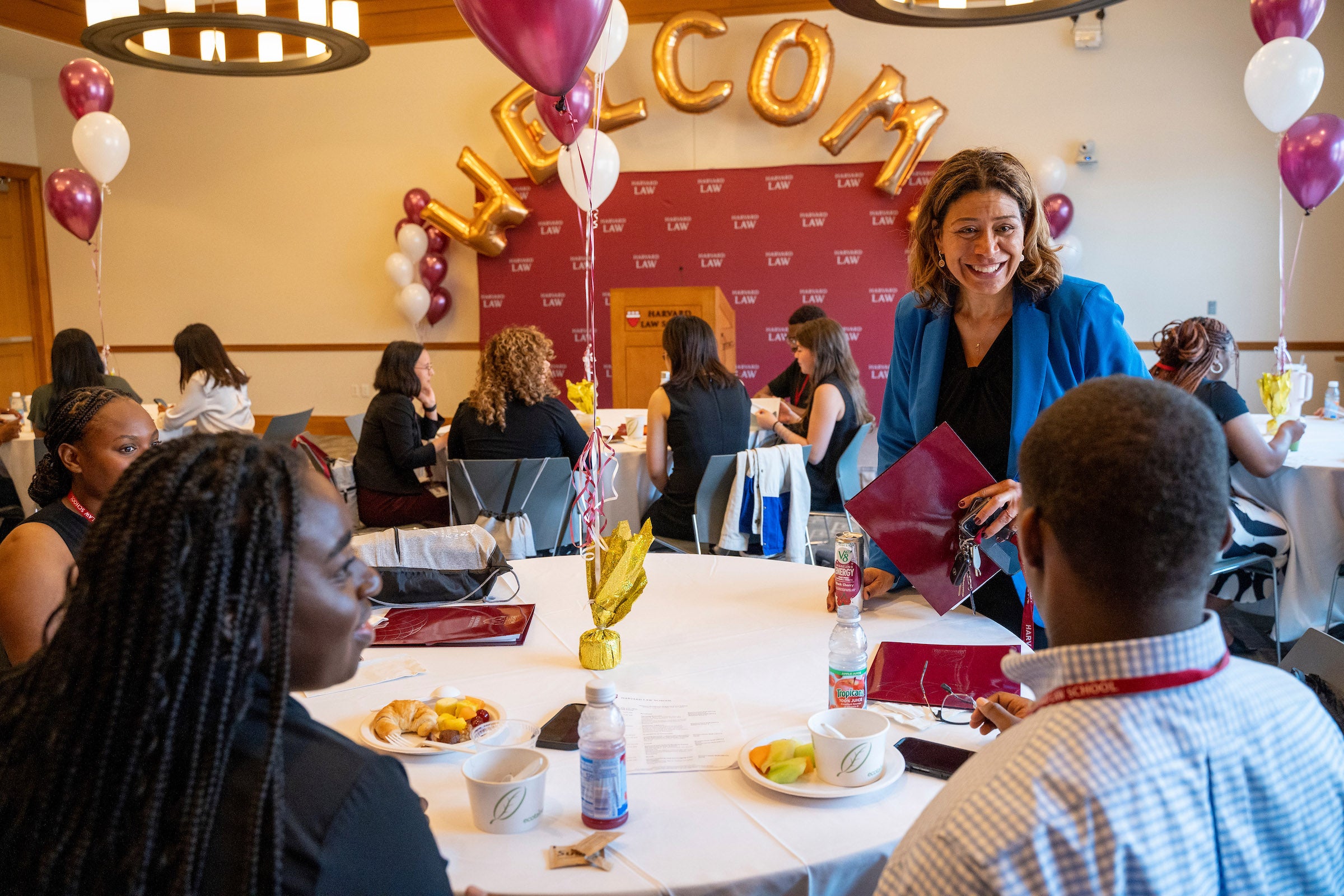
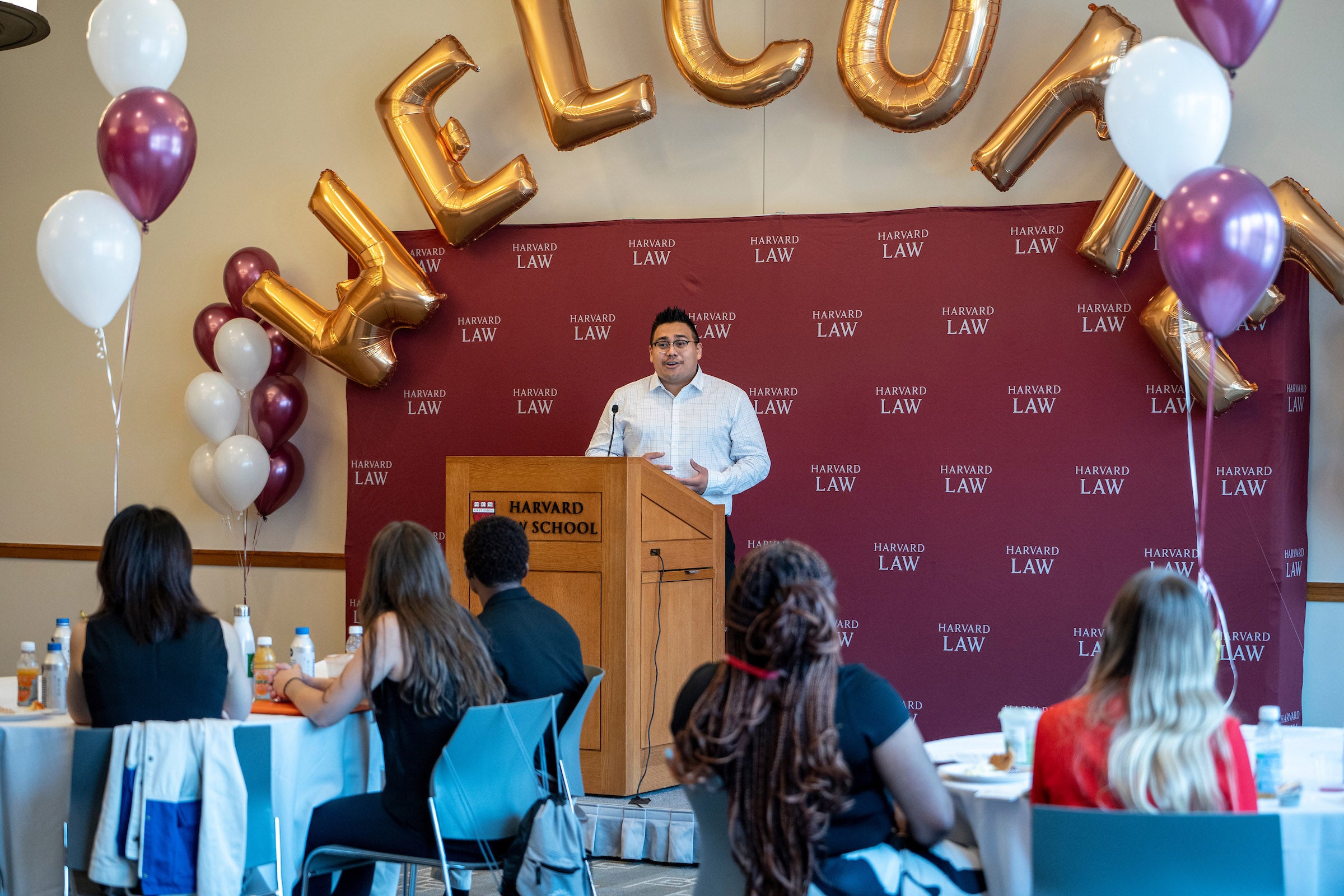
Her colleague Armando Olea Romero, assistant director for the office of community engagement, was bleary-eyed having met fellows delayed by bad weather the previous day and cancelled flights on campus at 4 a.m. But his enthusiasm couldn’t be contained. He described his joy at being “in community with you all this morning.”
Next up, I. Glenn Cohen ’03, a first-generation college student and expert in ethics and the law, said everyone feels like an outsider at law school and asked the fellows to repeat with him “I belong here.”
Citing their varied individual lived experiences, Cohen said the fellows walk into every room with pride, integrity, empathy, a deep understanding of people, and the ability to juggle multiple tasks. They are the kinds of skills, he added, others call “leadership.”
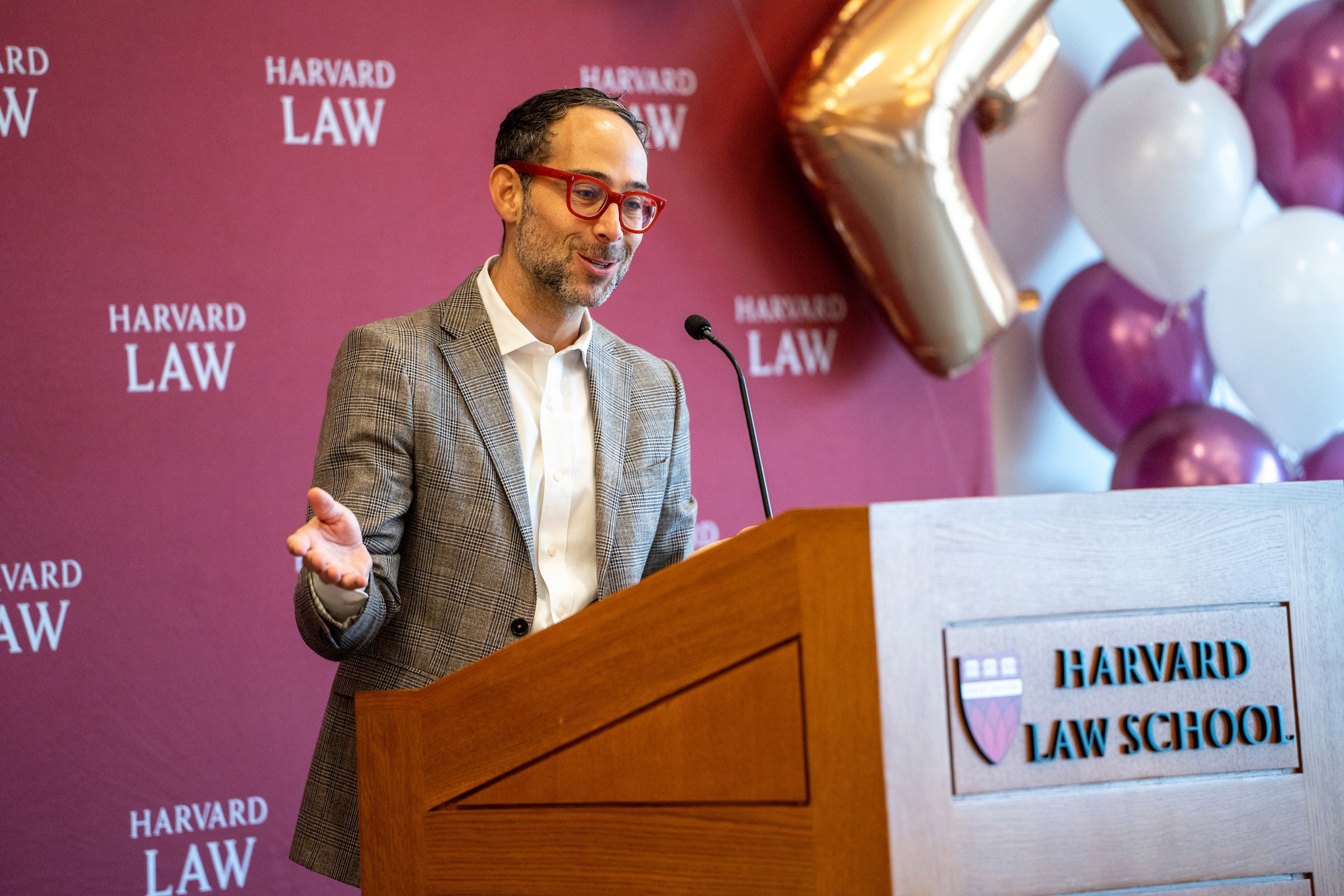
At lunch, the sense of community continued to grow as the fellows got to know each other better over a shared meal. At one table, participants said they “were feeling in community with everyone,” and “excited to have this community,” and that they needed “this group of people” to help them through the demands of applying to law school and beyond. Beyonce Hammond, a student at the University of Central Oklahoma where she is studying political science and minoring in leadership and pre-law was looking forward to support from a like-minded group of peers all interested in a legal career. “I don’t want to do it by myself,” said Hammond.
The weeklong residency was just the beginning of the yearlong program that will include months of intensive online test preparation, as well as regular zoom meetings and mentoring sessions with HLS faculty, alumni and current students. The new initiative is the latest in a range of efforts at Harvard to encourage diversity in the legal profession.
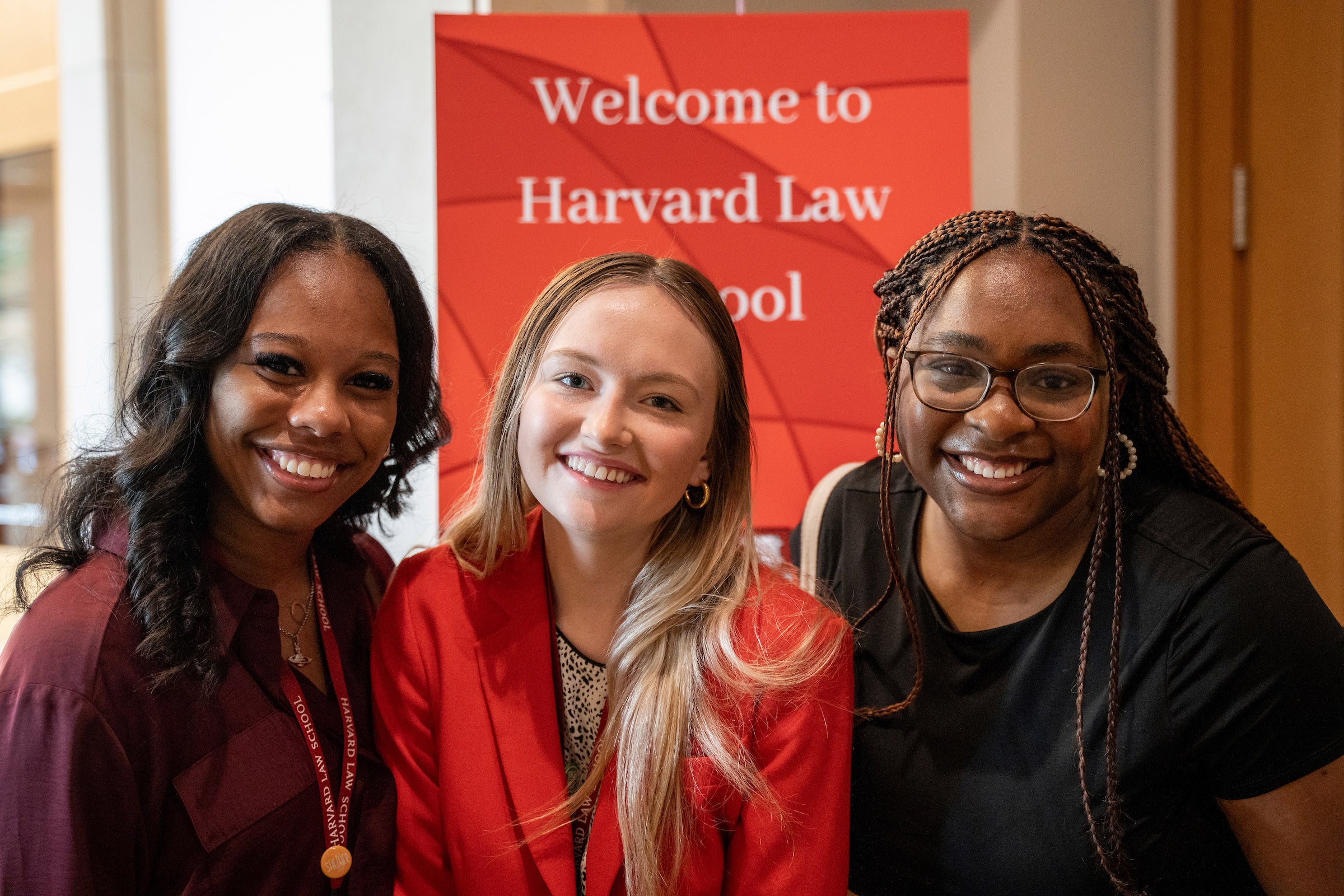
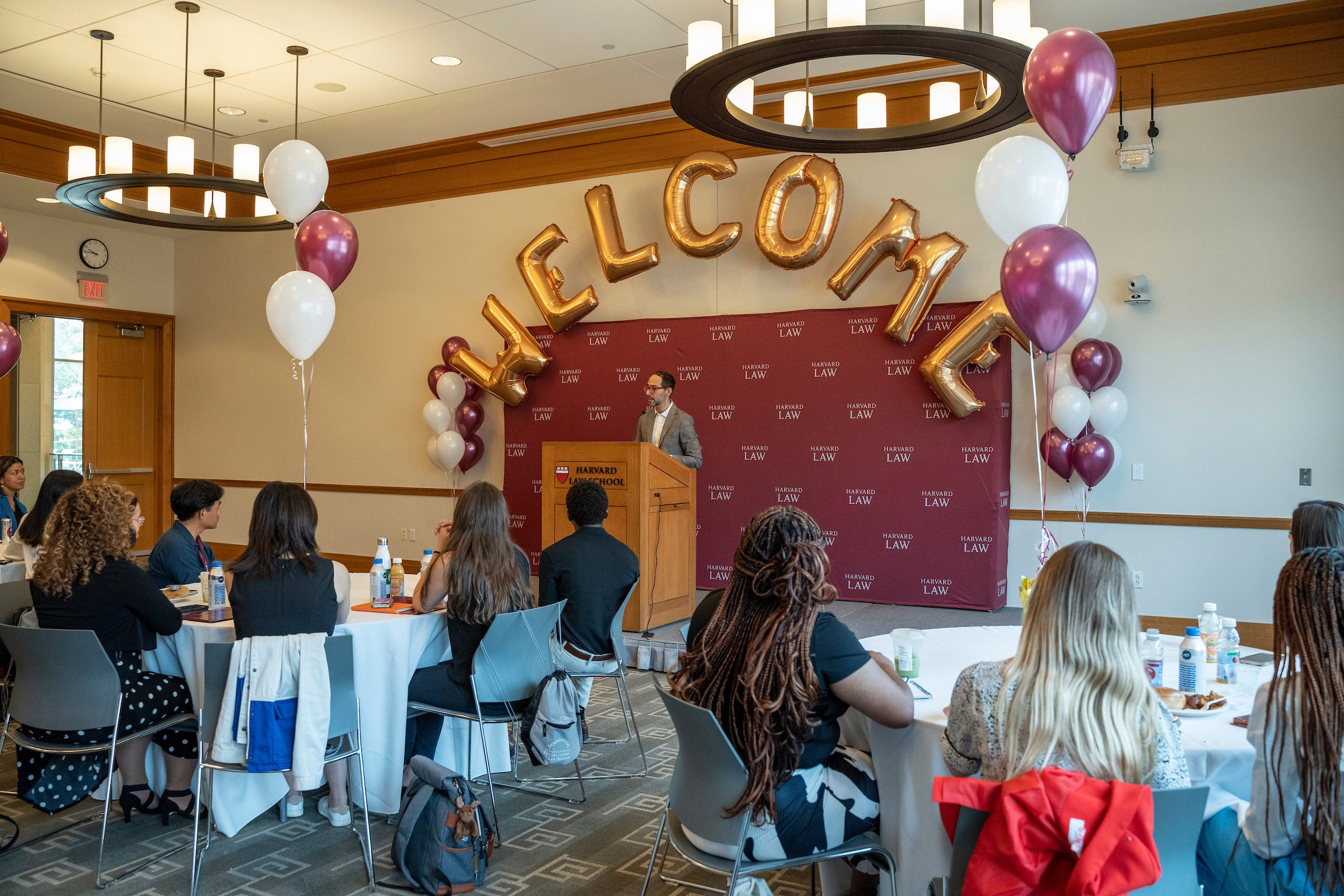
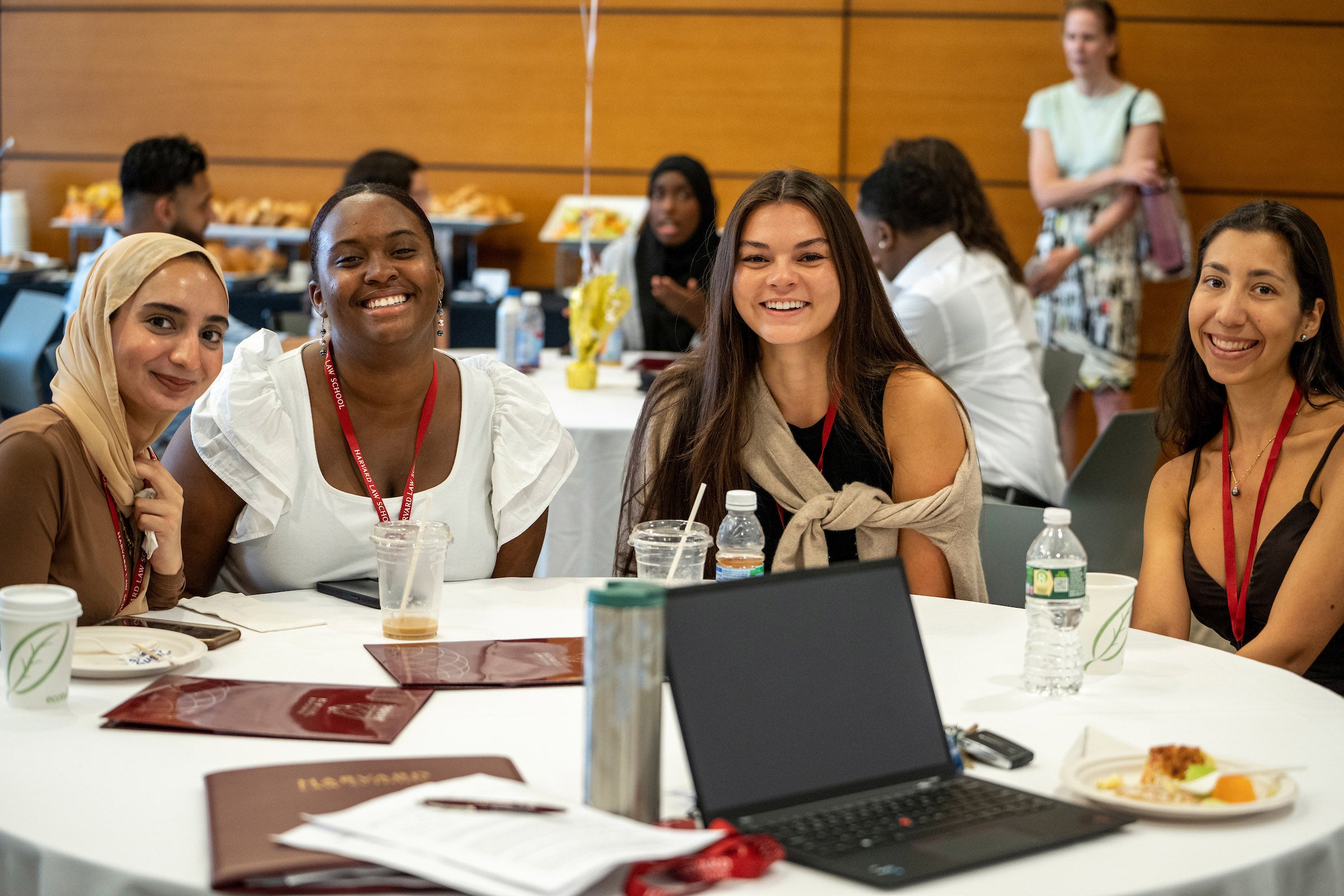
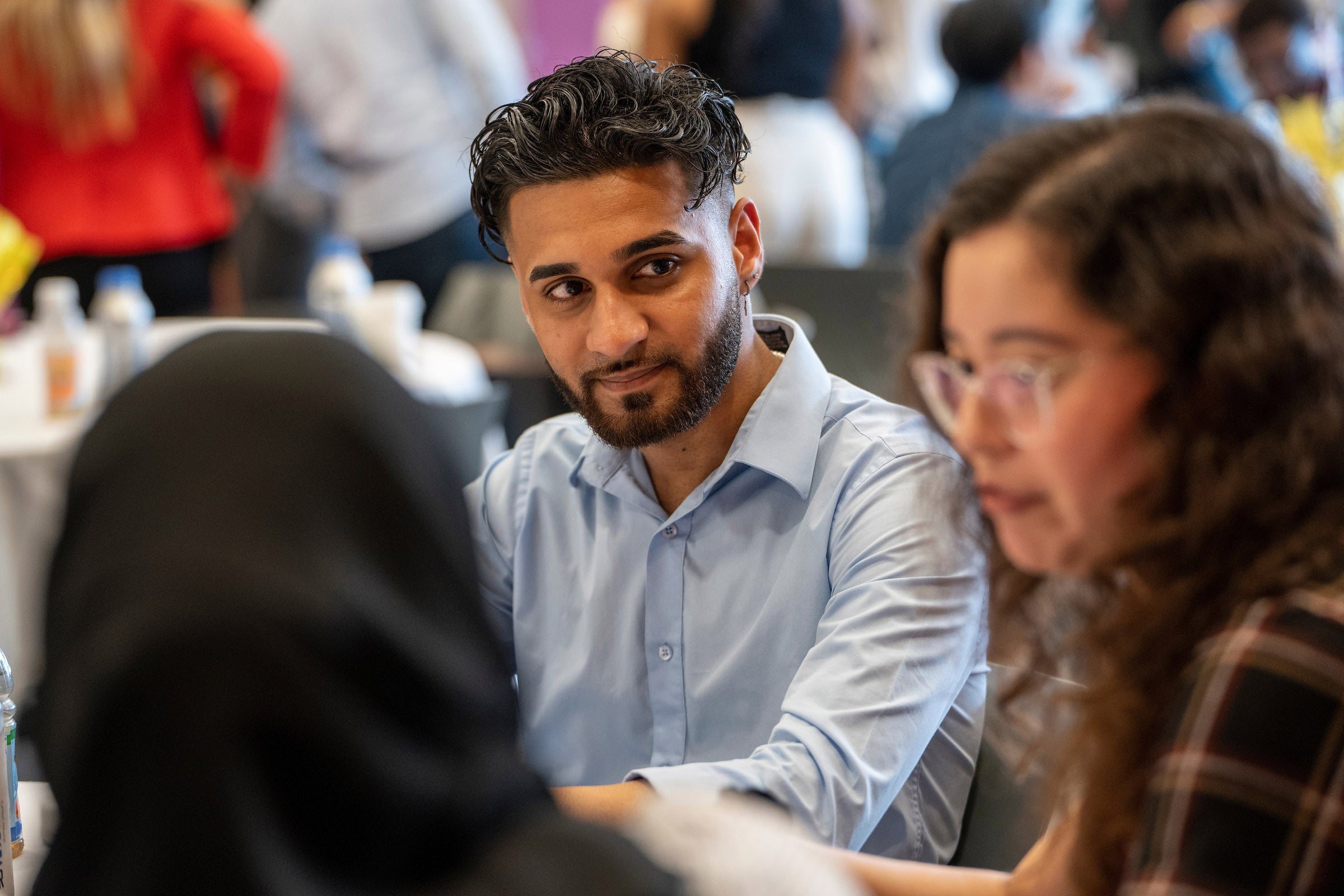
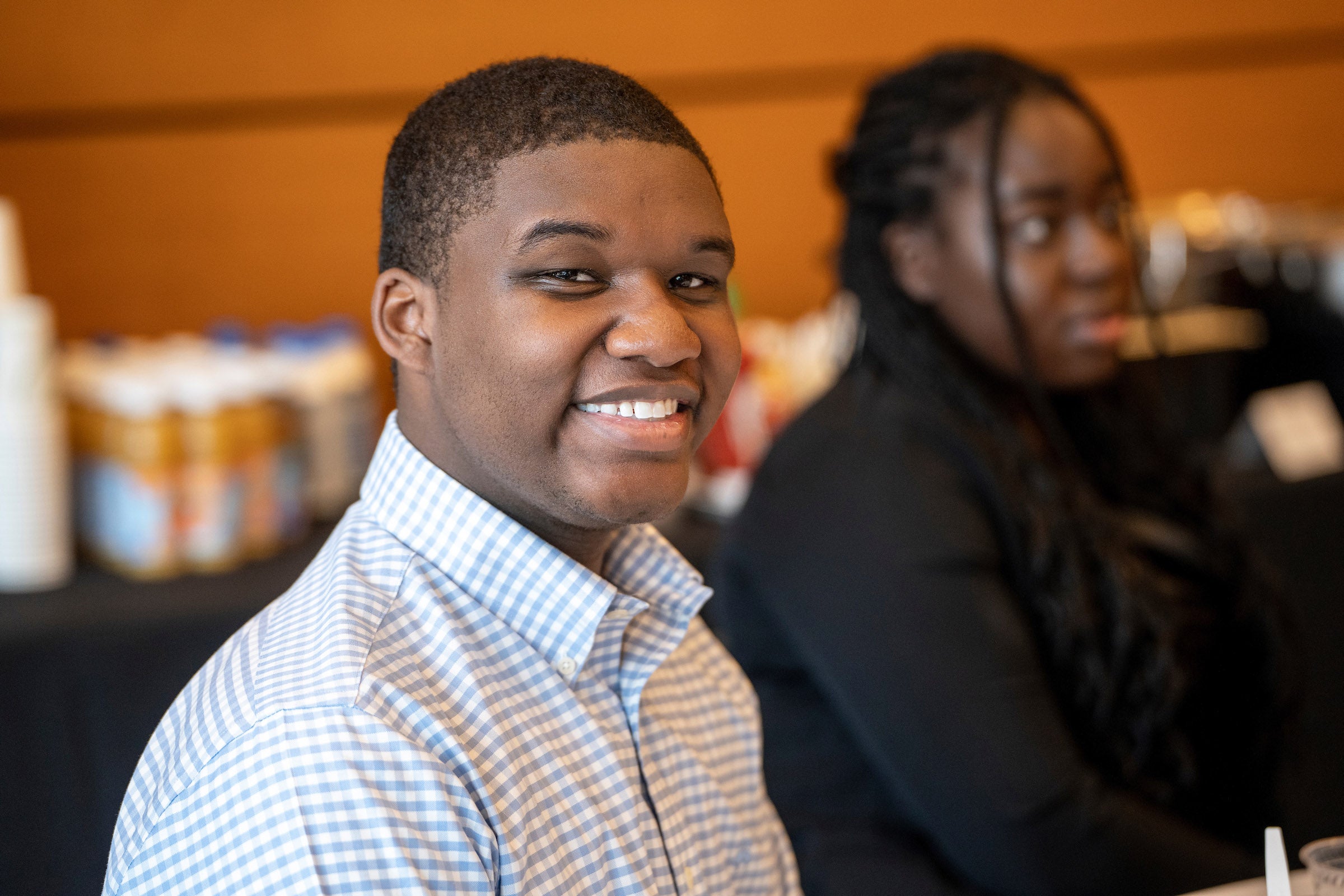
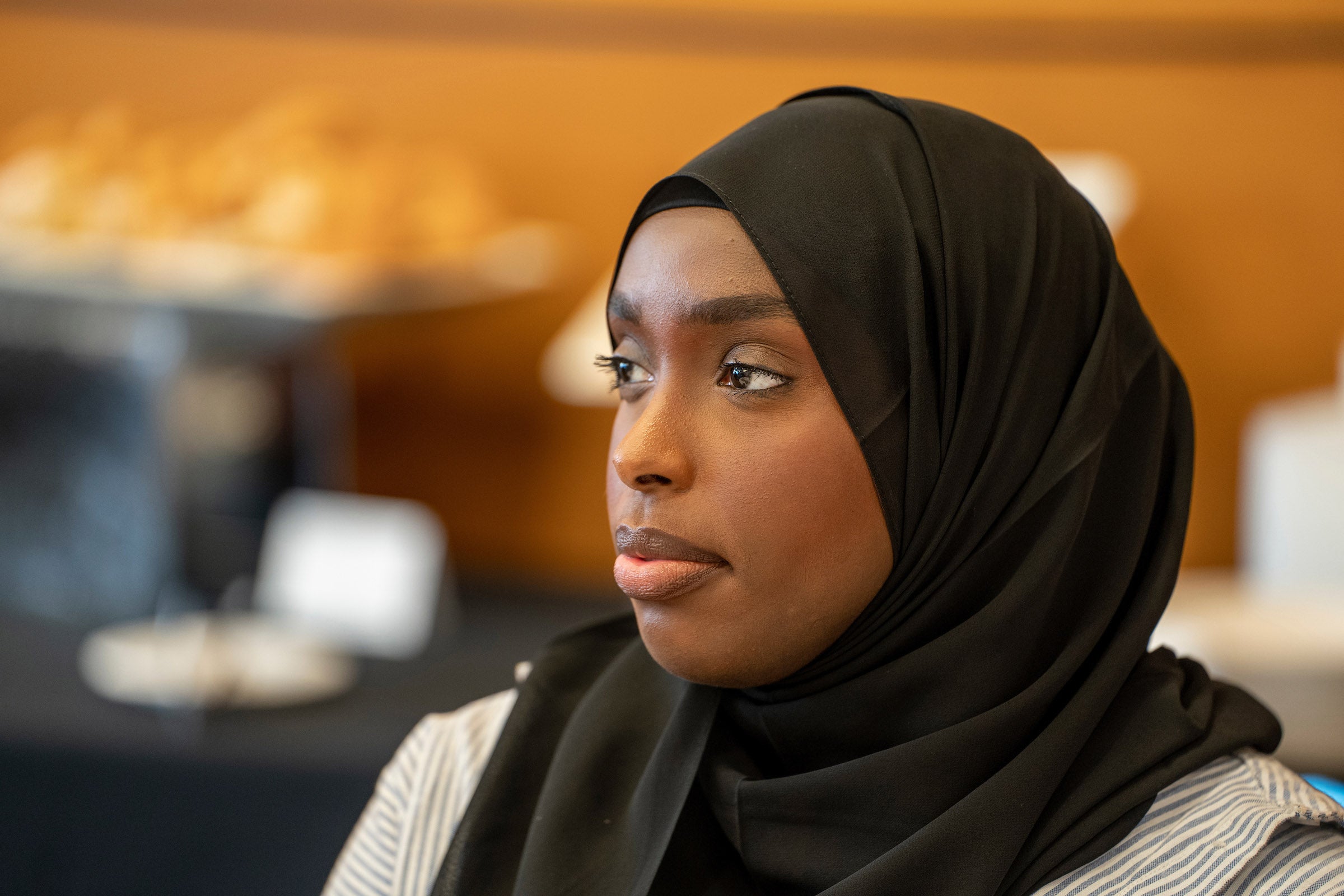
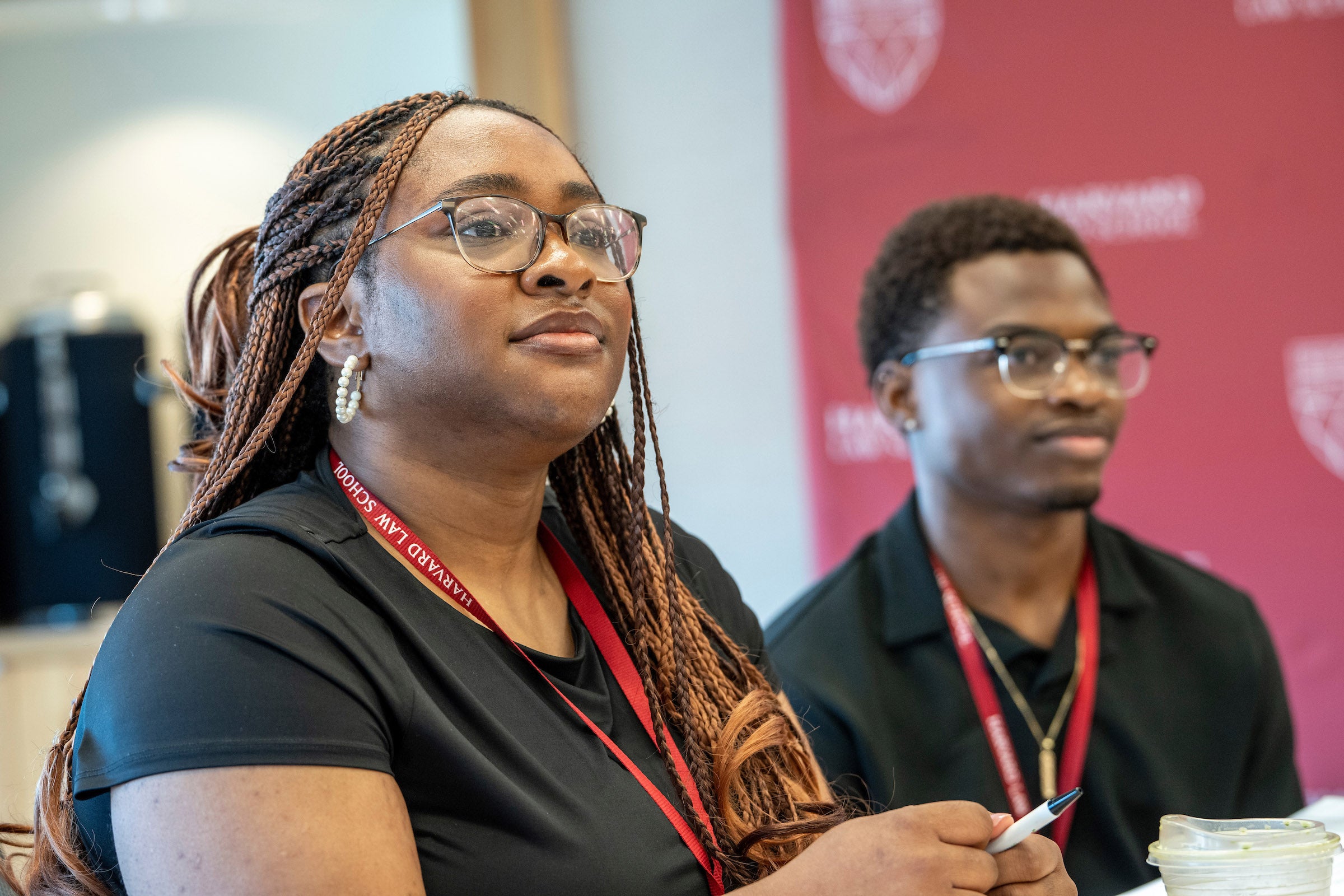
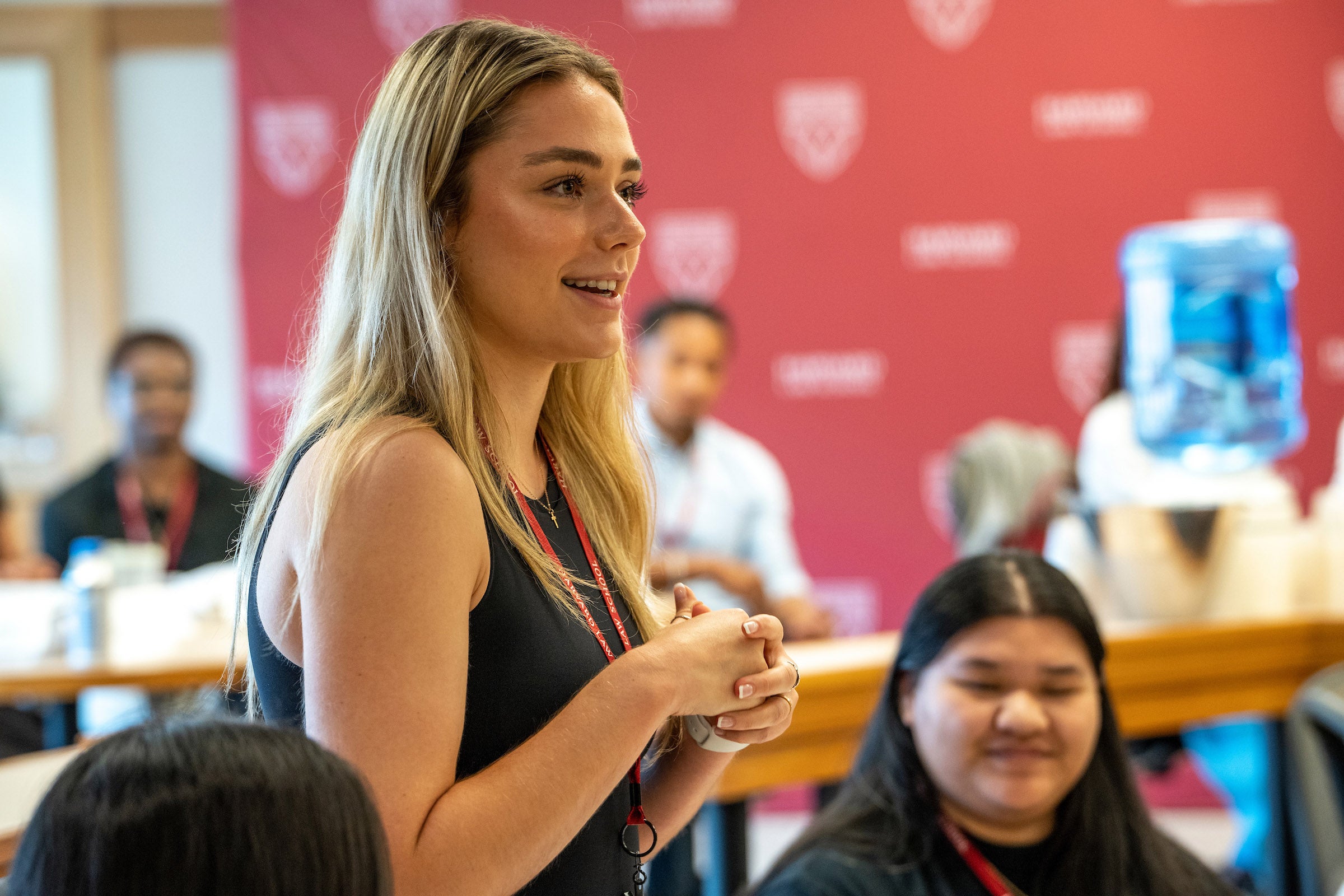
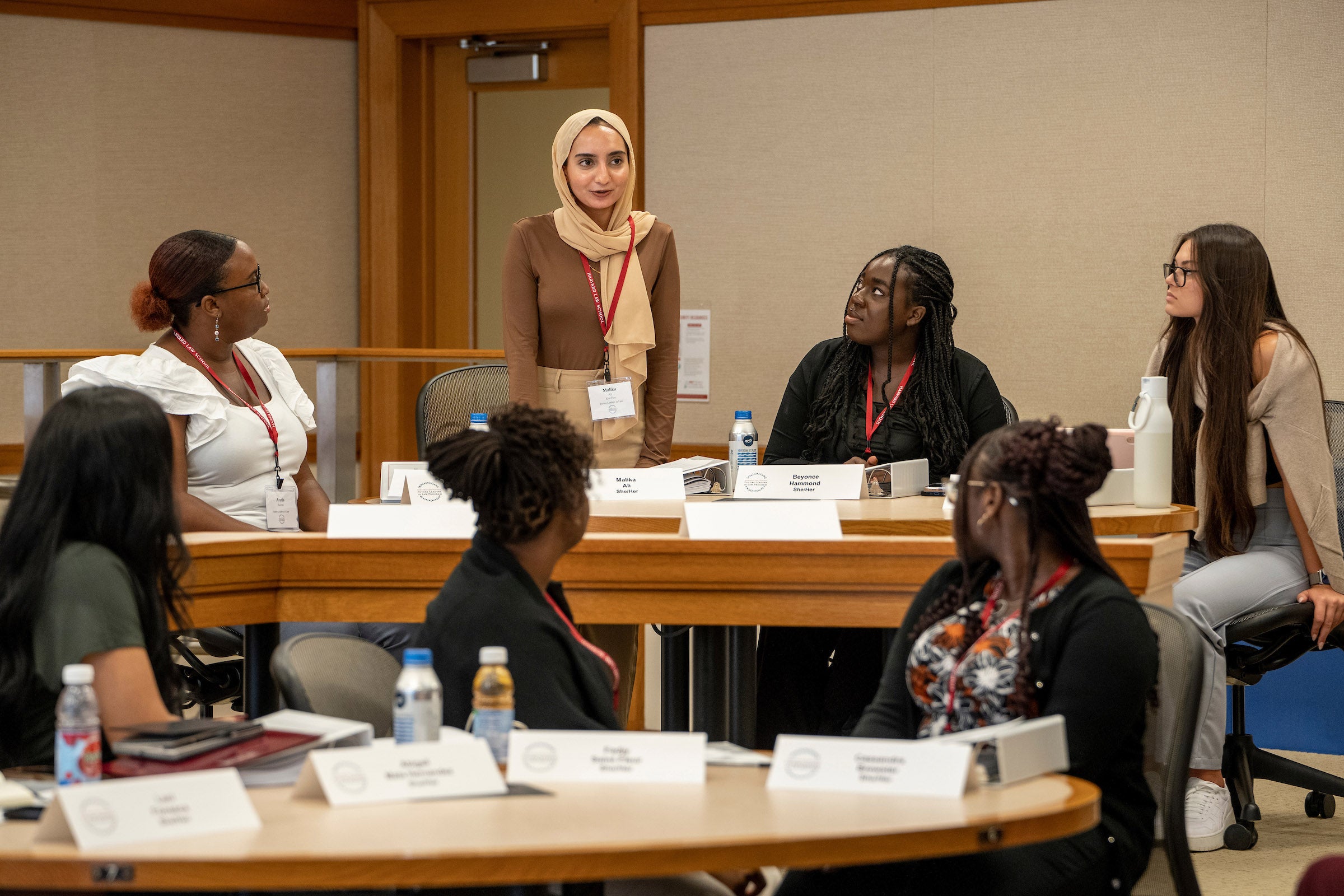
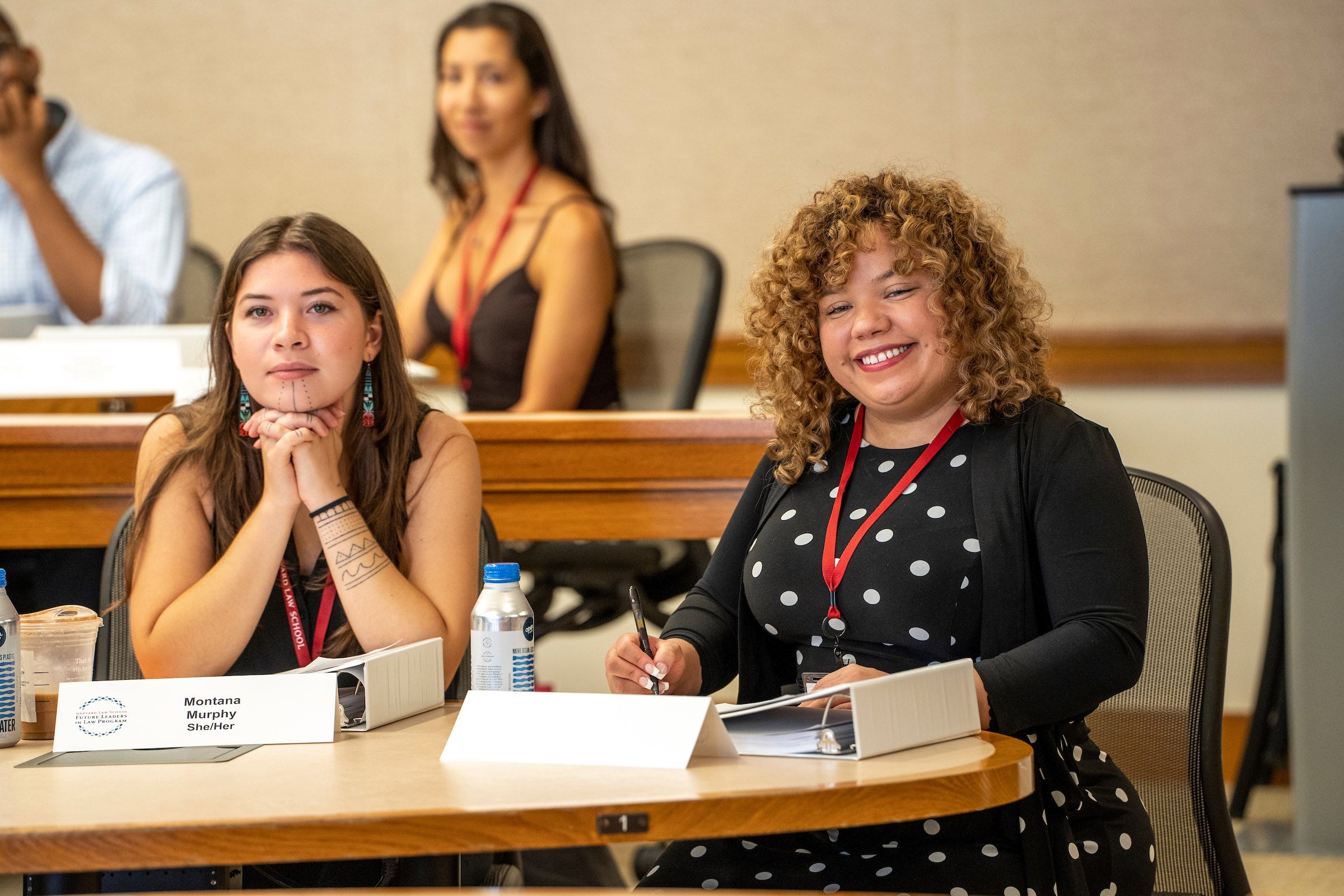
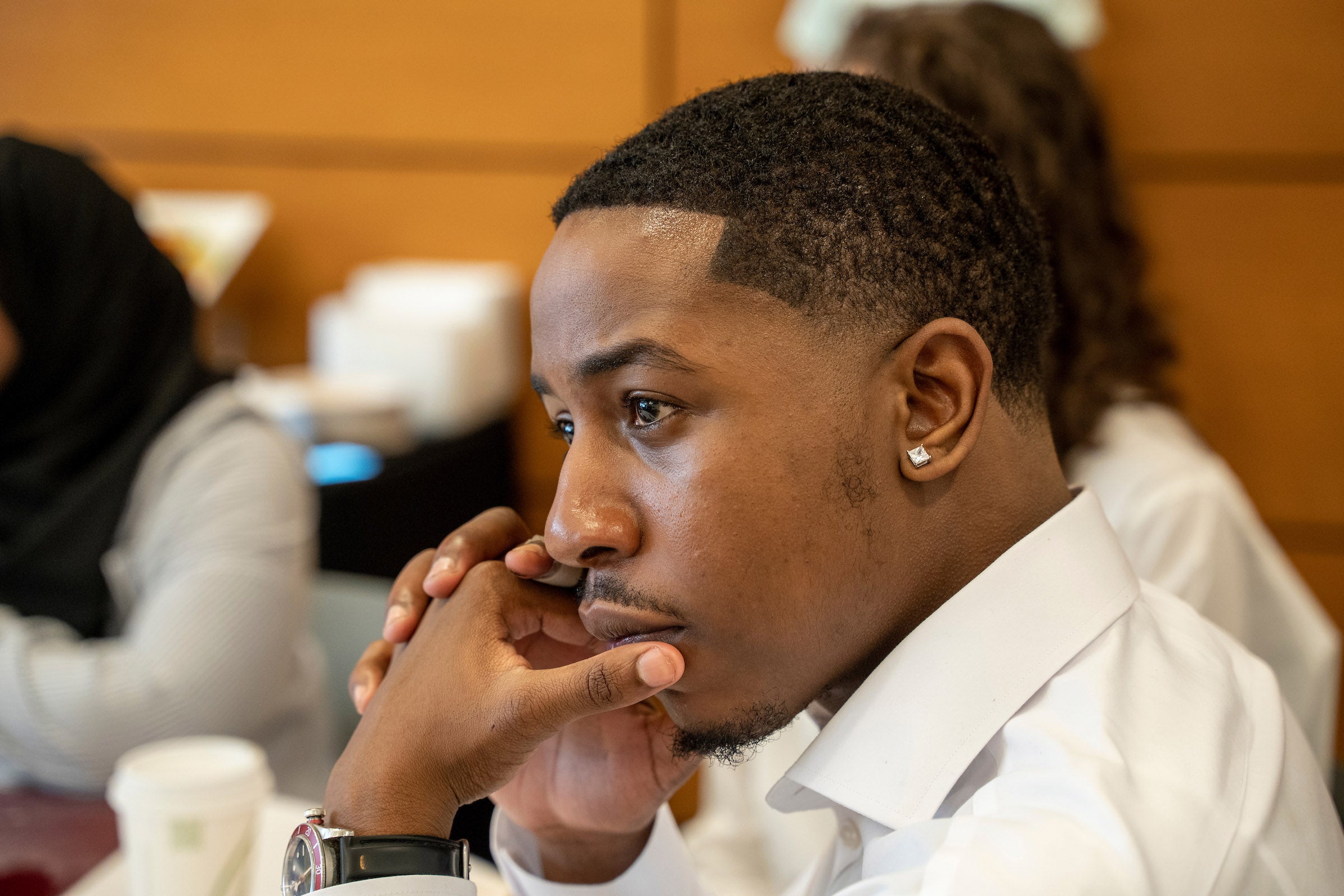
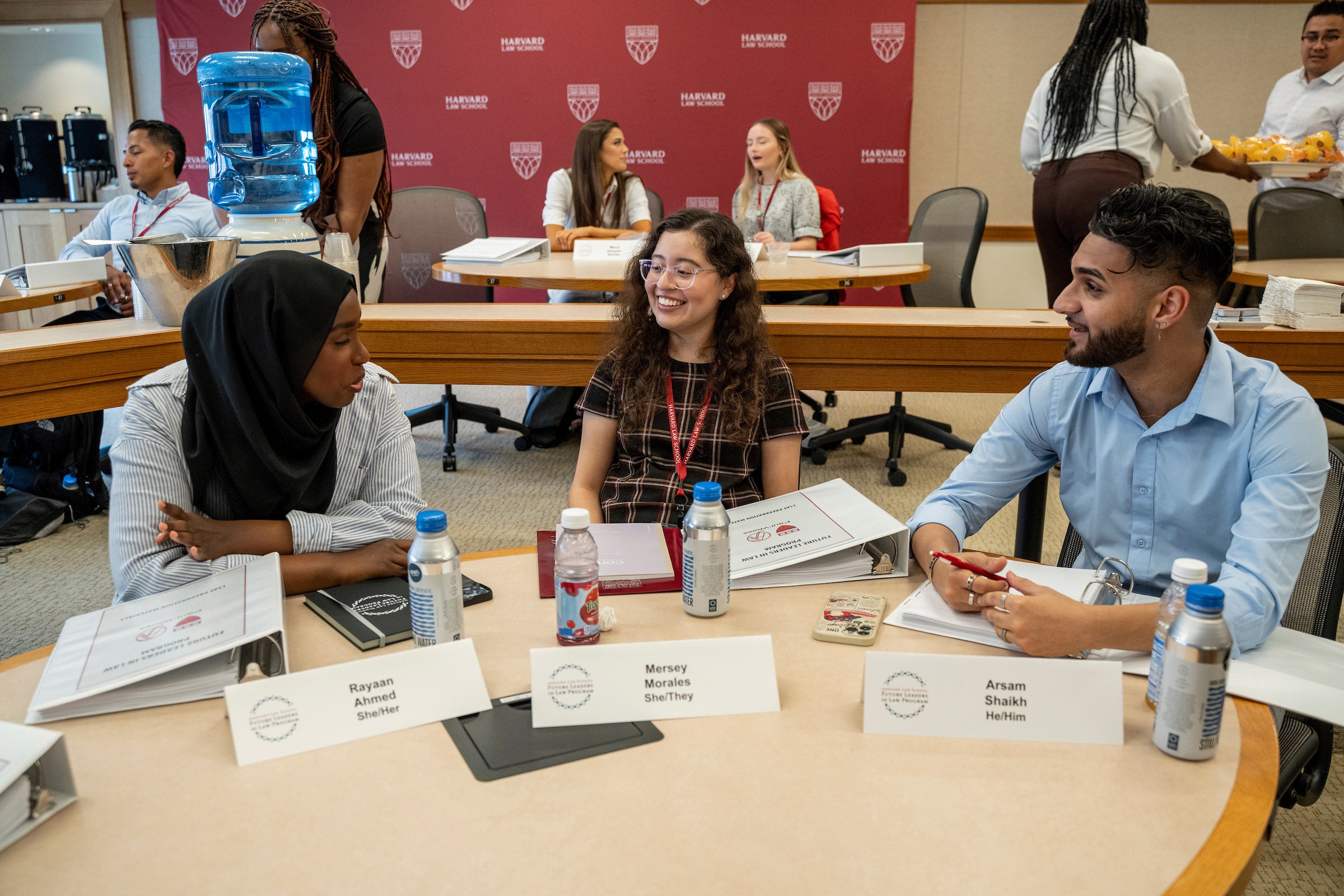
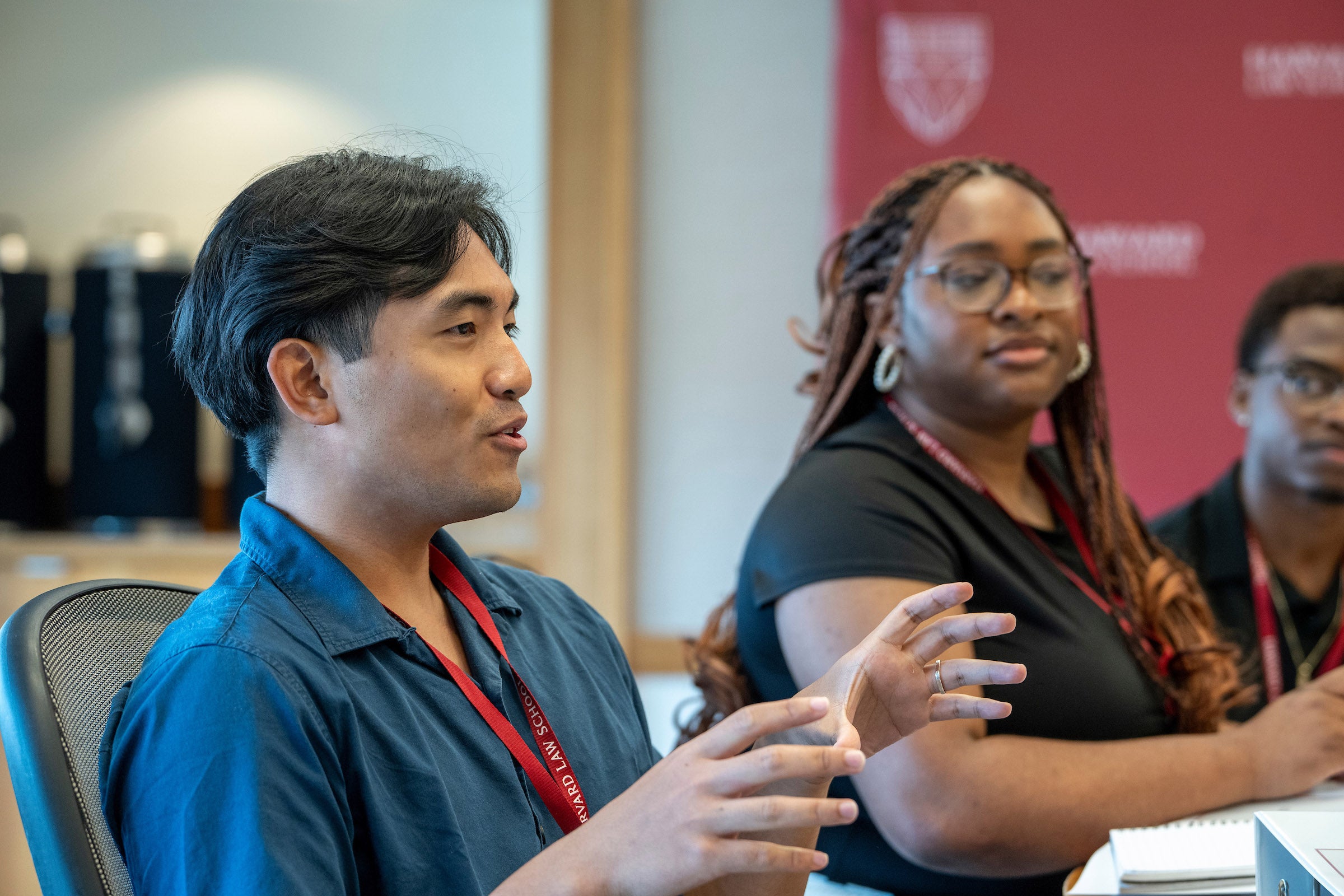
Harvard Law School is a founding partner of the Leadership Enterprise for a Diverse America Legal Program, which is designed to expand the pipeline of underrepresented, low-income students attending top-tier law schools nationwide. The Law School has also developed Future-L, a collaboration between Harvard Law School and the National Education Equity Lab aimed at encouraging high school students to consider law school and a legal career, as well as the Training and Recruitment Initiative for Admission to Leading Law Schools (TRIALS) in partnership with New York University. The TRIALS residency program alternates campuses each year and helps talented and motivated college students of modest means gain admission to the nation’s leading law schools. Harvard is also the birthplace of Zero-L, an online course designed to ensure all incoming students, whatever their backgrounds and previous areas of study, start with foundational legal knowledge.
Monroe said being part of the new program has been a career highlight. “Helping others go on to help others,” she said, “is just such an important piece of what I philosophically believe is key to existence.”
On a campus tour the fellows oohed and aahed in the Langdell Reading room duly impressed by its grandeur. They snapped pictures with their phones of a portrait of the first class of women ever admitted to the law school, and nervously laughed at the microphones in an Austin classroom used to amplify student answers to questions from discerning professors.
Their nerves were justified. They’d already experienced the rigors of the Socratic method firsthand thanks to a session with the seemingly innocent title “A Classroom Conversation with Professor Guy-Uriel E. Charles, Charles J. Ogletree Jr. Professor of Law.” After brief introductions, the talk quickly turned to a nuanced discussion about the constitutionality of segregating classrooms by race with Charles making the fellows hone their arguments on the spot. They were undaunted. After the class many said they were eager for more.
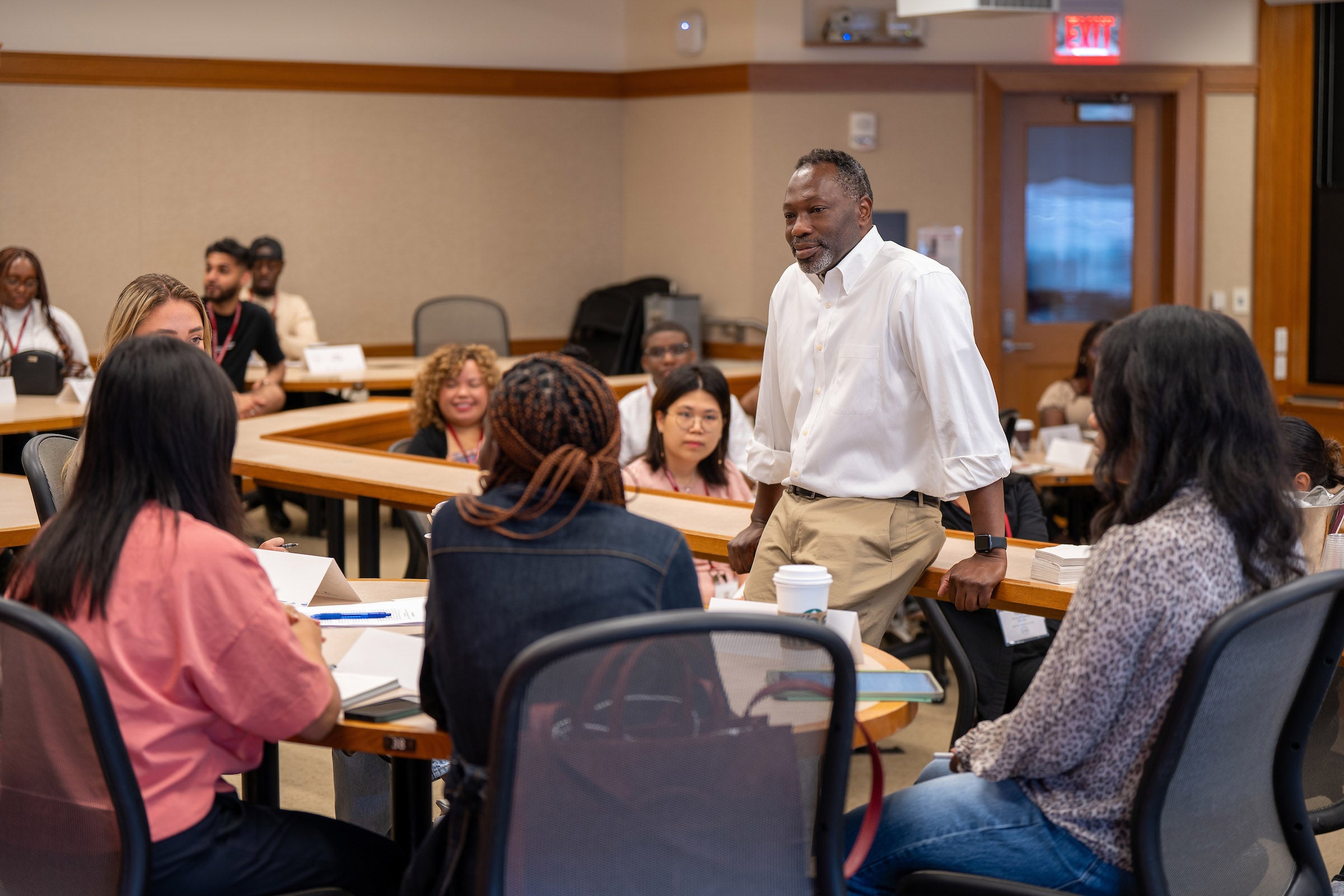
During their final session on their first day, John F. Manning ’85, Morgan and Helen Chu Dean and Professor of Law at Harvard Law School, and another first-generation college student, thanked the fellows for being there and outlined the importance of an effective legal system. Done well, Manning said, the “law can lead to progress, which can lead to greater equality, to a government of laws, to justice. Done badly, it can stand in the way of progress.
“And so, getting people who are committed, who bring great ideas and perspectives and experience in professions, is so important. And that’s all of you. So, thank you for choosing this program and for thinking about the law as your chosen profession.”
In answer to a question about the best advice he would give his younger self, Manning offered a simple response. “Worry less.” Asked what makes a great law school student and lawyer, Manning said being an active and generous listener, one who carefully considers their client’s wishes, and opposing points of view. Another important takeaway from his career, he said, was learning how to handle both success and failure. “It’s important to be gracious in victory,” said Manning, “and in defeat.”
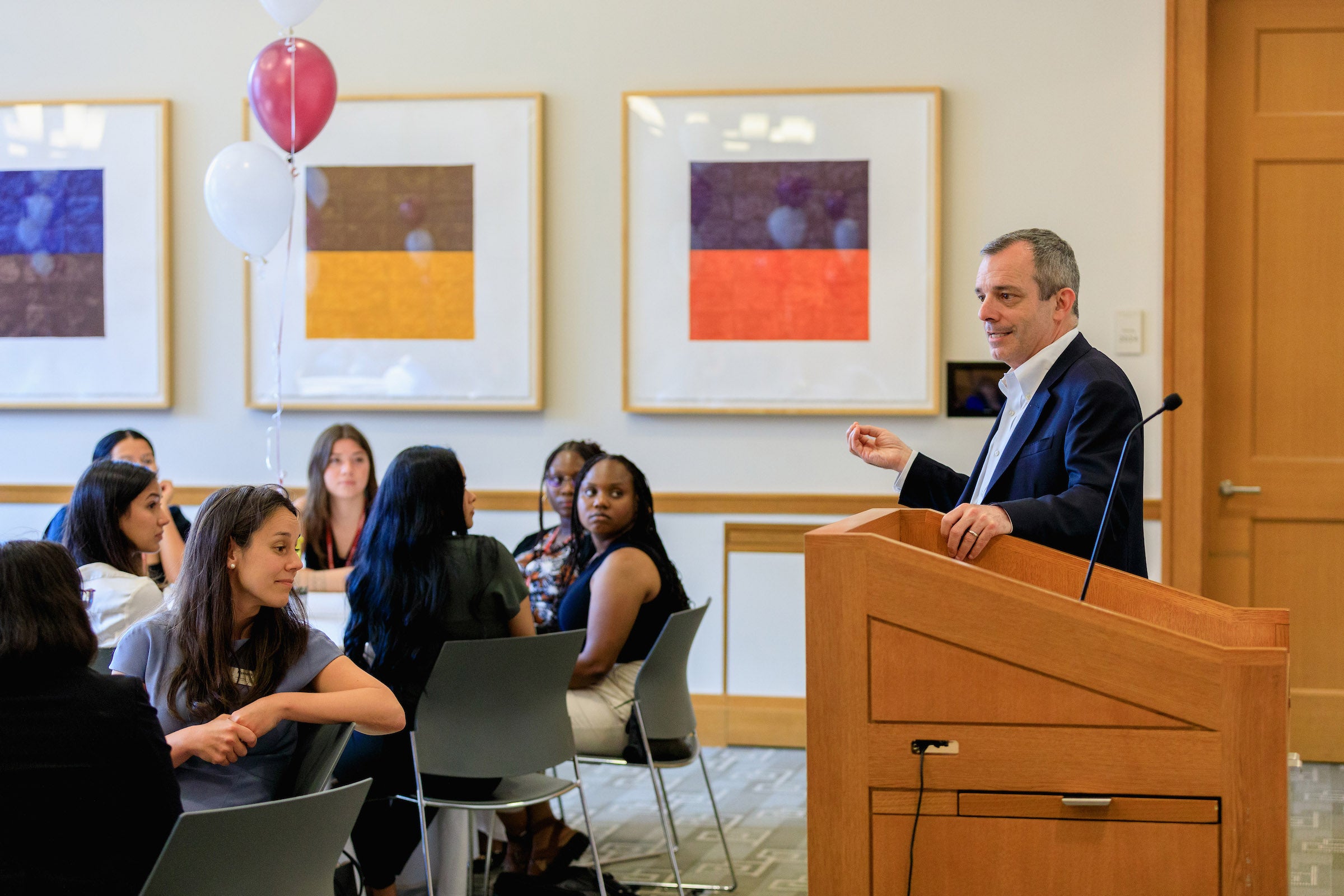
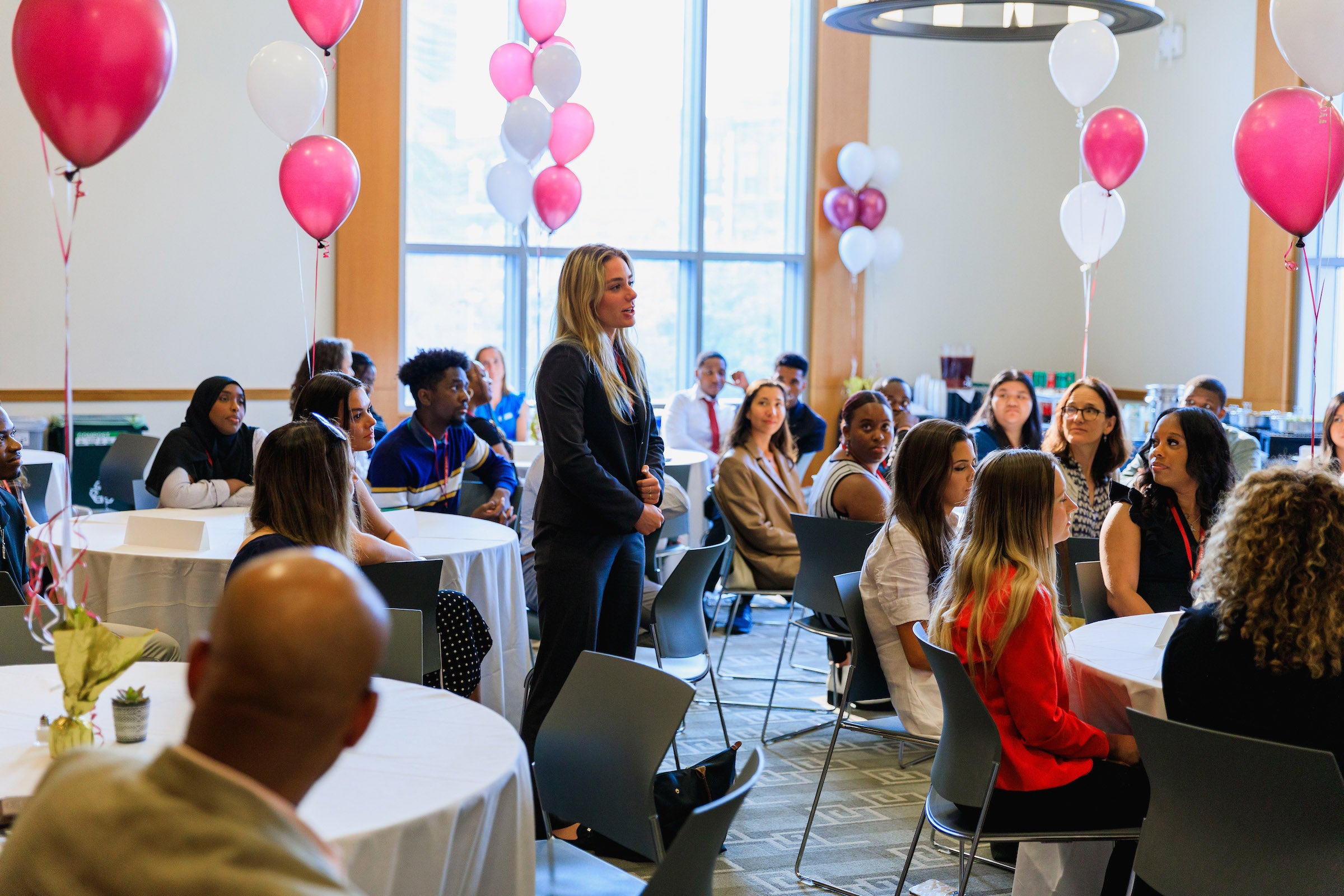
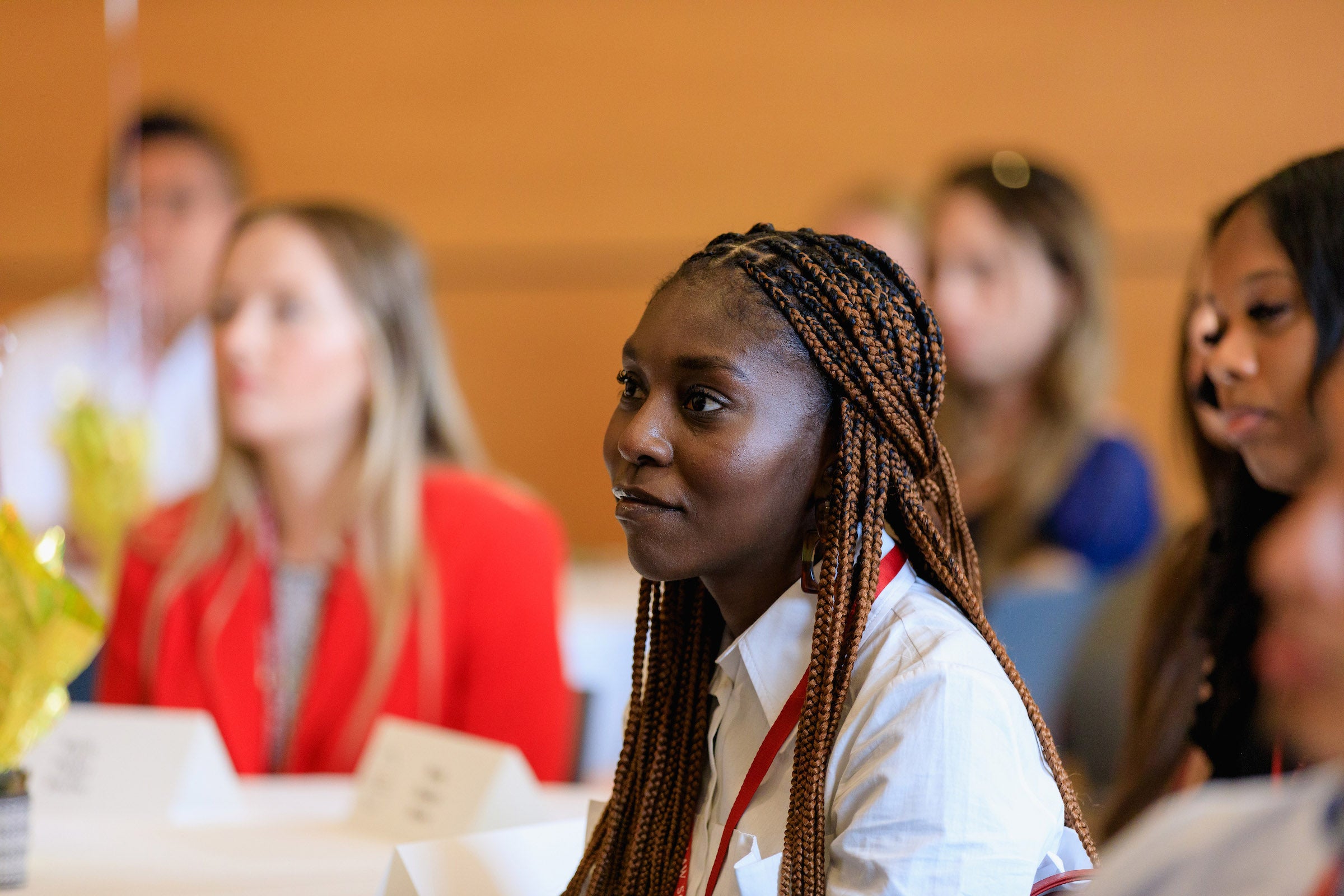
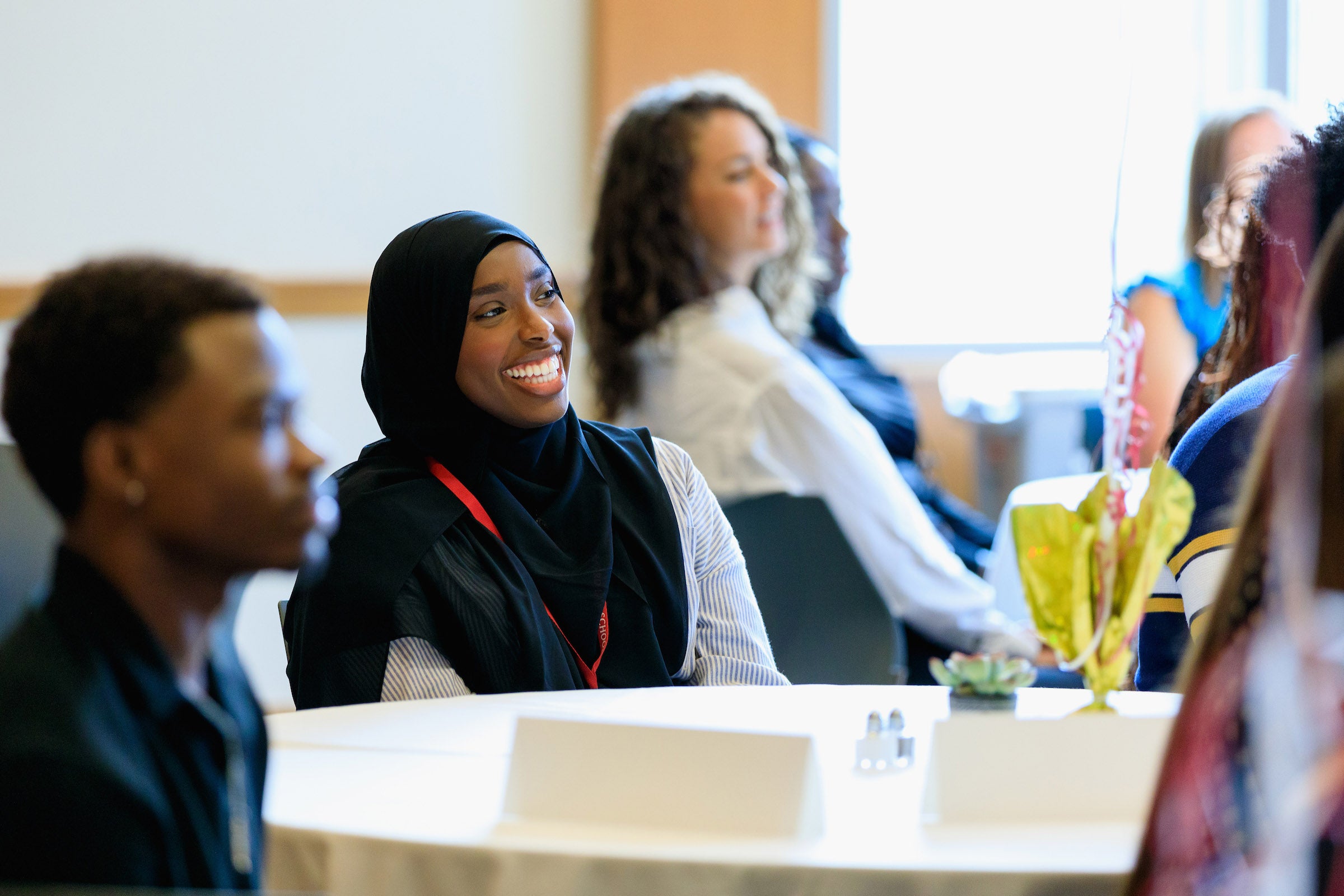
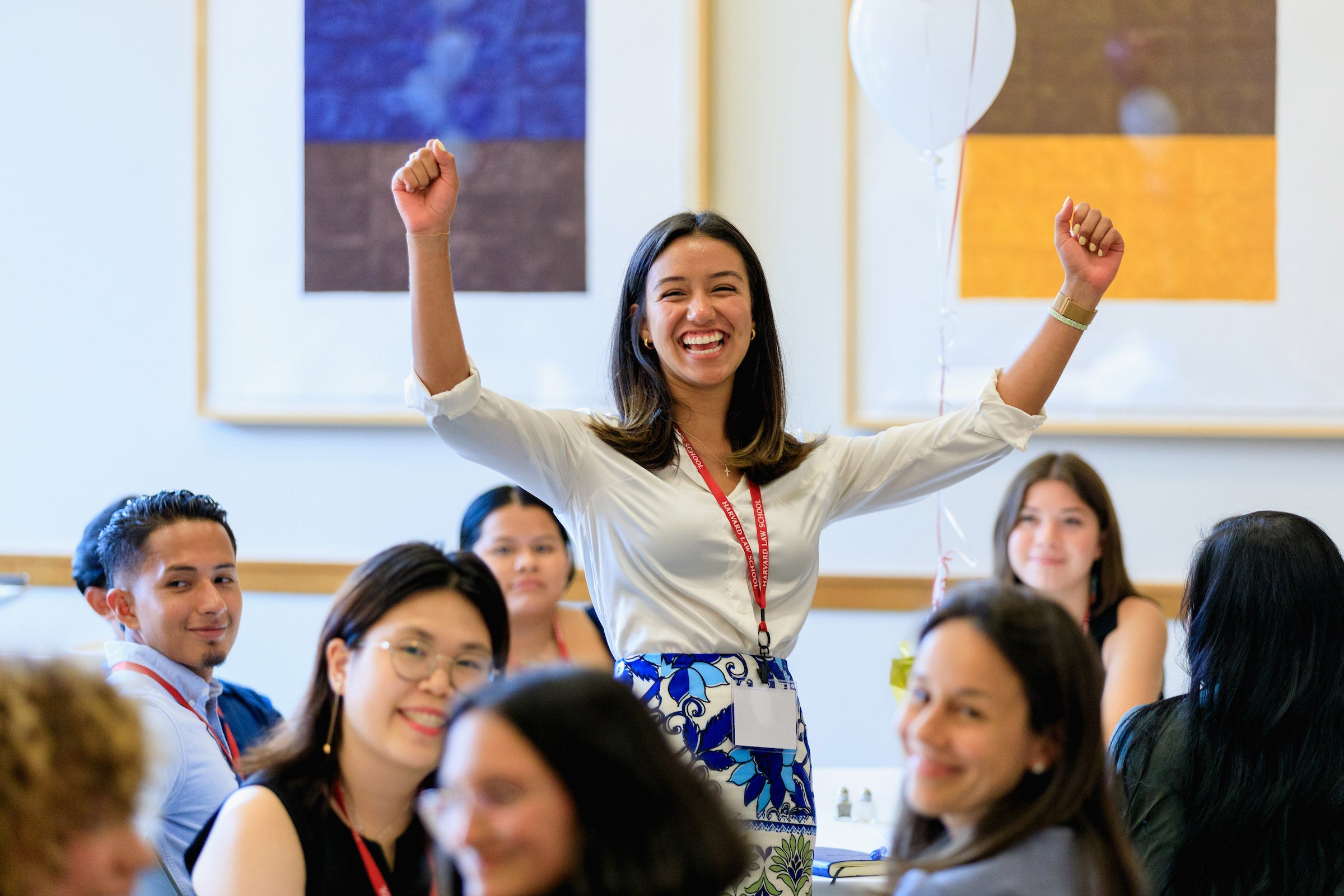
Emotions were high throughout the week and not just from the fellows who shared laughs, and selfies, along with their fears about taking the LSAT, overcoming imposter syndrome, and struggling to feel like they fit in and find their place. Brad Karp ’84 found himself close to tears as the final speaker of a daylong session at his firm Paul Weiss in New York City’s Times Square. The fellows had taken the four-hour bus ride to Manhattan on Tuesday for a series of meetings the next day with the firm’s attorneys, administrators, and partners, and to experience the atmosphere at one of the nation’s top firms. Their conversations touched on everything from the firm’s involvement with Brown v. Board of Education, and its pro bono, corporate, and transactional work, to what law firms look for in star applicants. Karp, who was supposed to end the day with a 15-minute address, answered questions for more than an hour.
“I do a lot of public speaking, and I’ve never been as moved as I was during that hour-and-a-half Q&A with them,” said Karp. “They were they were incredible. Standing in a room talking to this group, I was blown away by their enthusiasm, their curiosity, their talent, their passion. It was it was such a rewarding experience. My voice was cracking. It was just wonderful and so meaningful.”
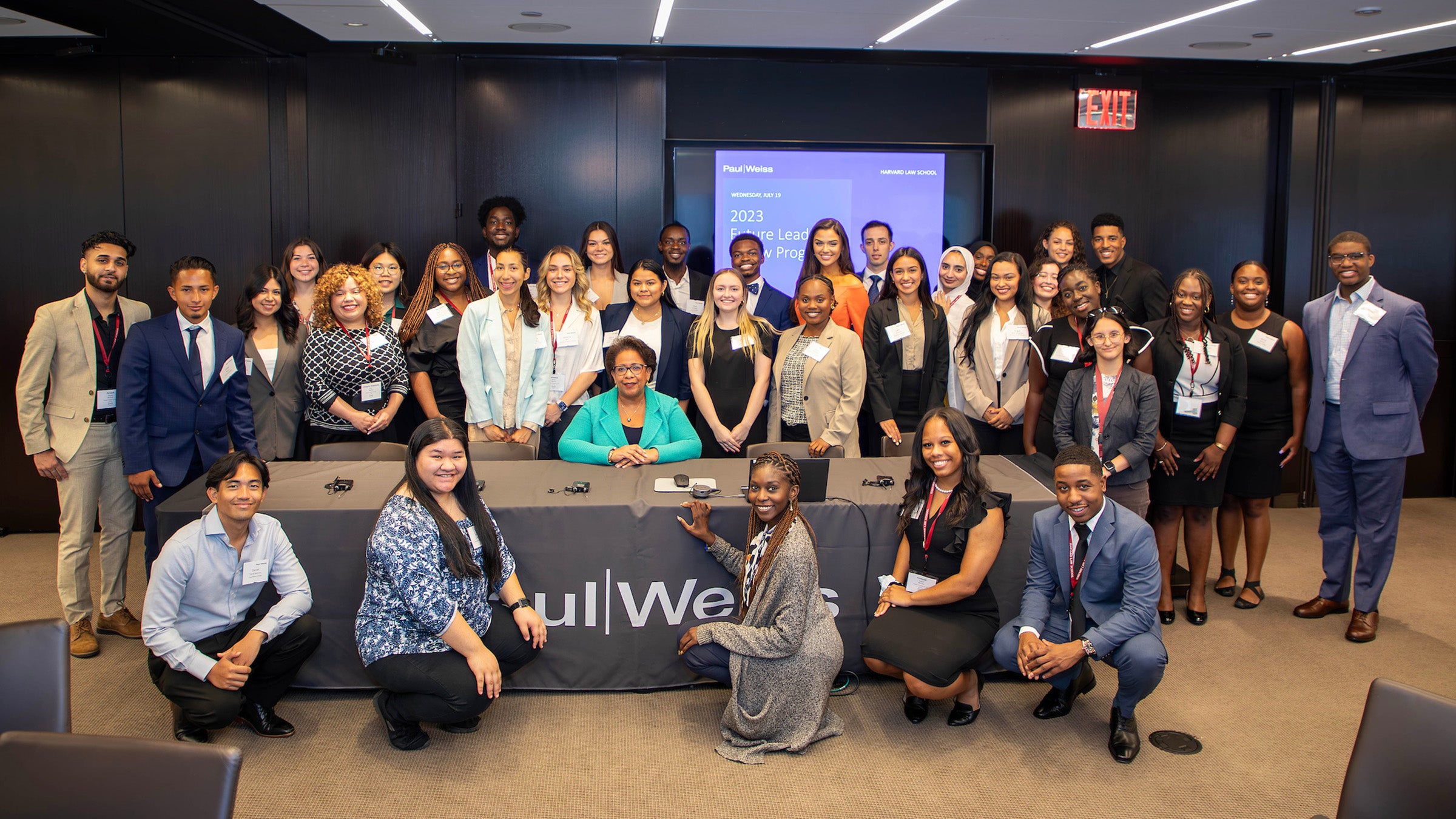
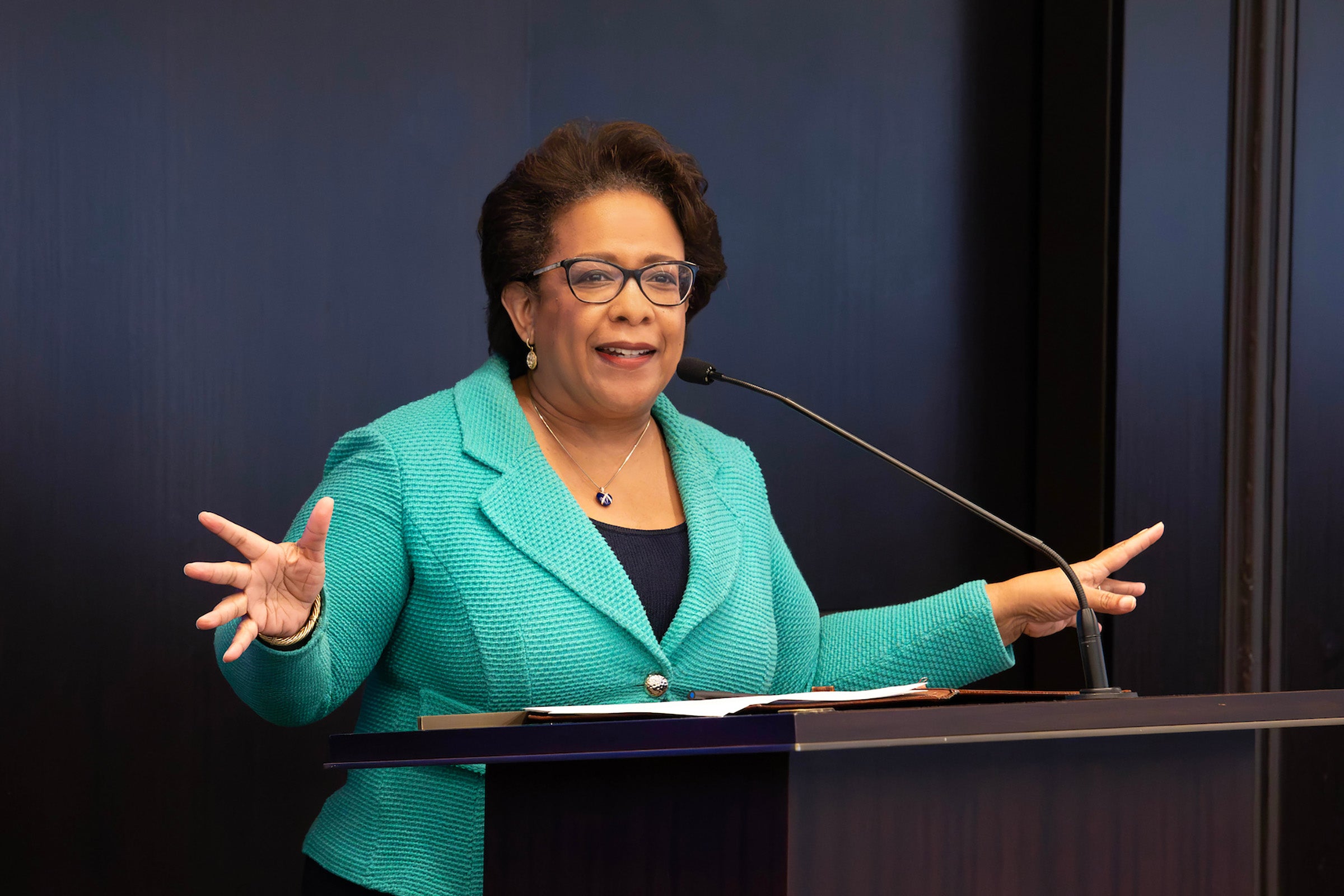
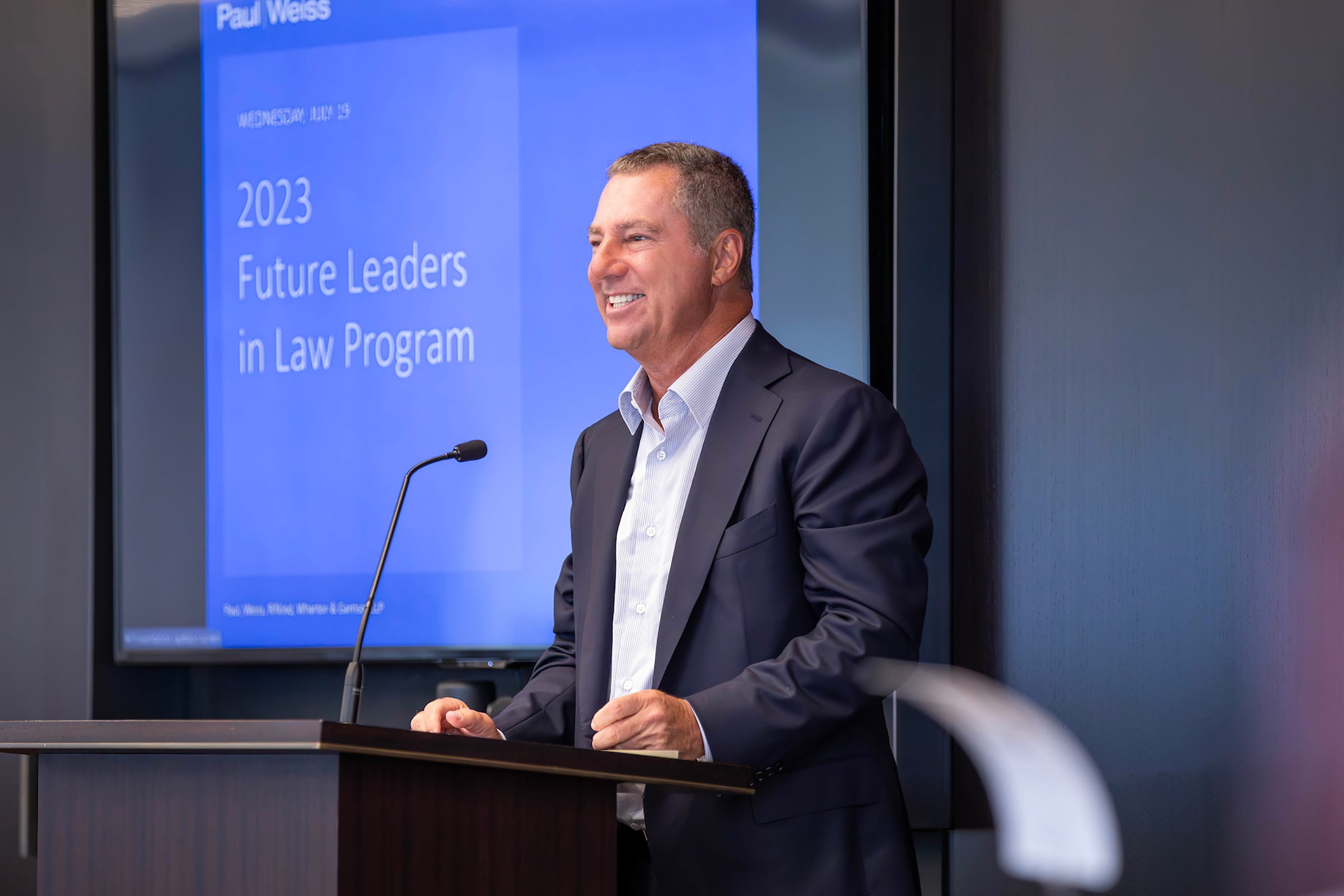
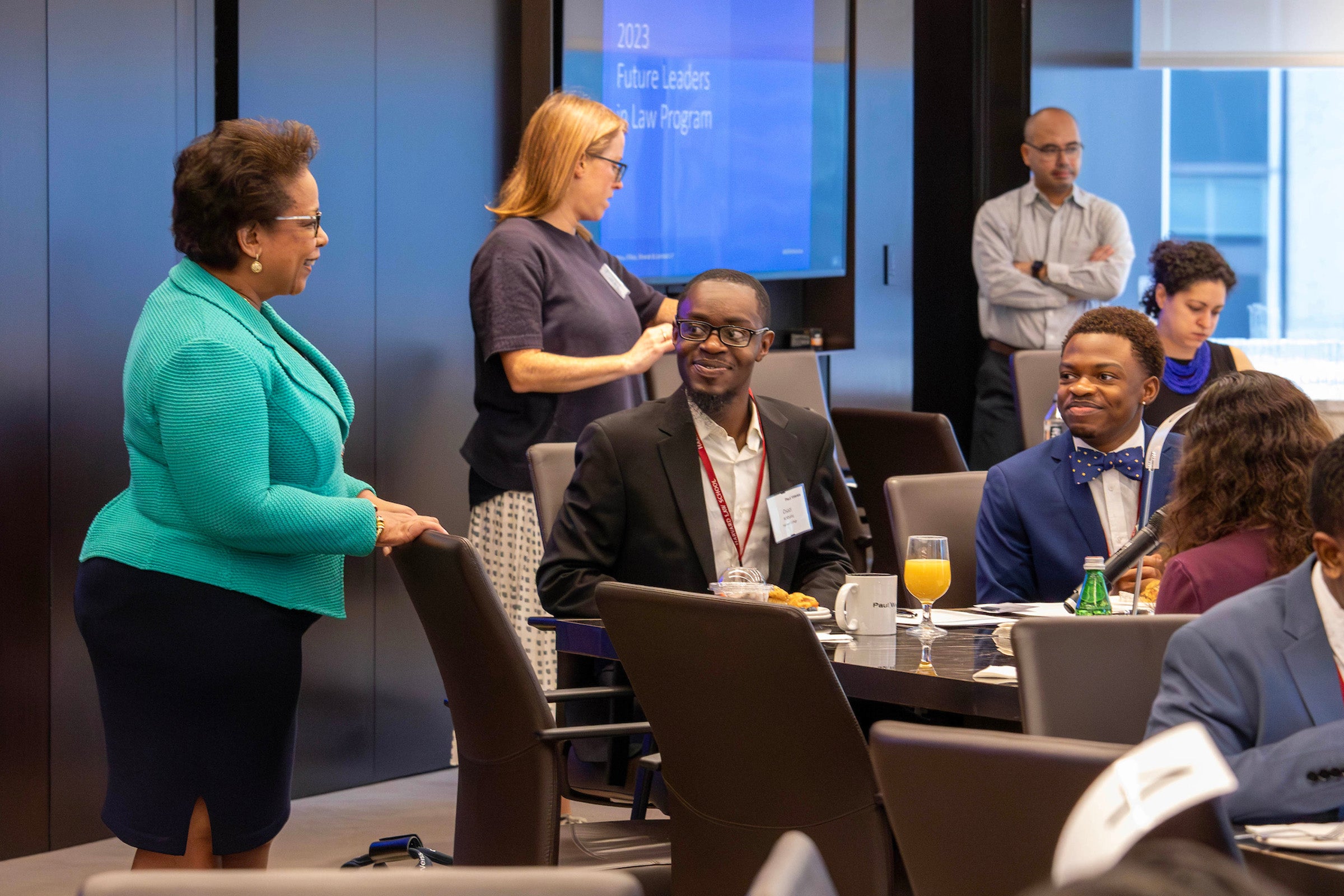
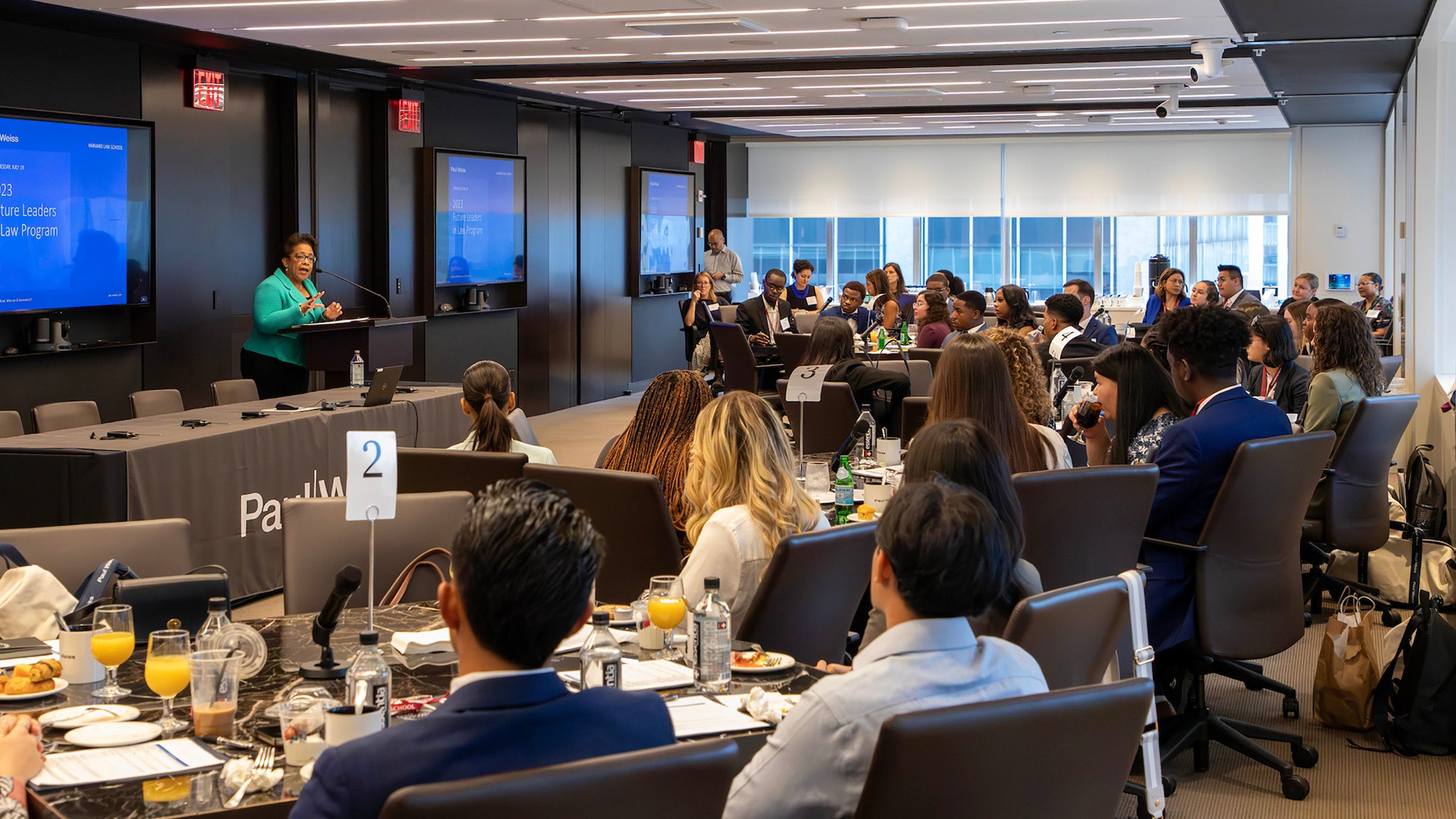
One wanted him to advise her about how to develop a sense of belonging in law school. Another was curious to know about how to make the biggest impact with a law degree. Another pressed him for his thoughts on leadership. “They were great questions. And I kept telling them ‘I can’t wait to look forward 20 years from now and see what you’re doing, how you’re improving the world, and the impact you’re going to have, individually and collectively. It’s going to make a huge difference.’”
Rayaan Ahmed, a first generation student whose parents are from Somalia and who hopes one day to use her law degree to help those from underserved communities navigate the legal system, had been looking forward to the trip to Paul Weiss to learn more about the firm. Back on Harvard’s campus she said the exposure to the firm’s wide range of clients and legal work helped her believe “I belong here.”
On Friday afternoon, as the residency wound down, Monroe thanked the fellows for being there, for joining in community, for paving the way for the program’s future cohorts with their input and feedback, for taking an important step towards a more inclusive future, and for having the courage to be vulnerable and share their fears.
“Put your faith over fear,” she told the fellows, many of whom wiped away tears.
There were more tears as the group shared hugs and contact information and grabbed last-minute photos before parting ways. But it was only a temporary goodbye.
“I feel like I have 34 new cousins,” said Rodney Wells, a rising junior and social sciences concentrator at Florida State University. “And they are all here for me.”
Pre-Law Resources
-
Pre-Law Programs at HLS
Harvard Law School is proud to sponsor programs that demystify the law school admission process and introduce high school and college students from broadly diverse backgrounds to the legal field.
-
Leadership Enterprise for a Diverse America
The preeminent national nonprofit organization dedicated to diversifying the national leadership pipeline by helping high-achieving students from under-resourced backgrounds gain admission to our nation’s most selective colleges and supporting their success at these institutions.
-
National Education Equity Lab
Bringing college credit-bearing classes from the nation’s top colleges to high school students in historically underserved communities around the country, at no cost to students.
-
Zero-L by HLS
Zero-L teaches foundational legal concepts and demystifies the law school experience. Students learn the rudiments of the U.S. legal system, legal vocabulary, how to read a case and more in a flexible, on-demand format, helping law schools ensure everyone starts with a common baseline of knowledge.
Want to stay up to date with Harvard Law Today? Sign up for our weekly newsletter.
